










A guide to help you reduce trash, reuse durable items, and recycle everything you can.
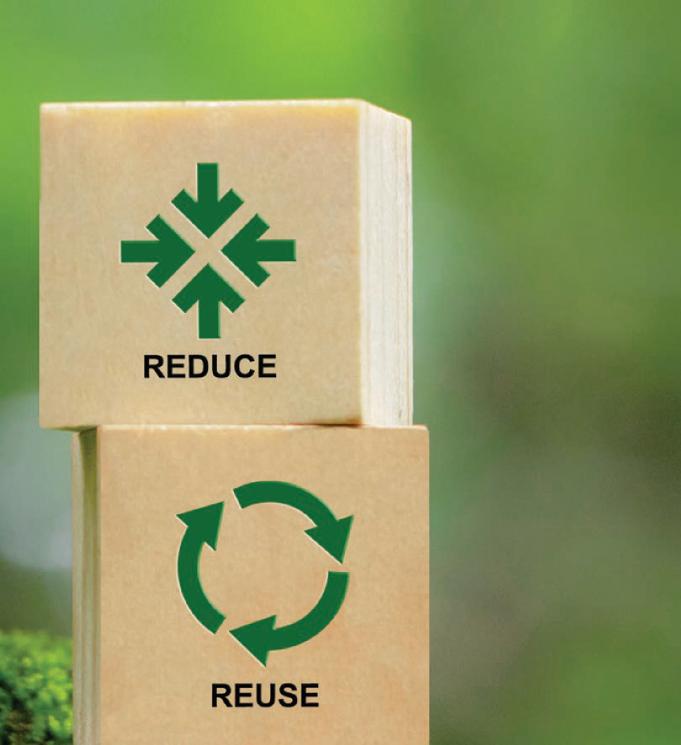
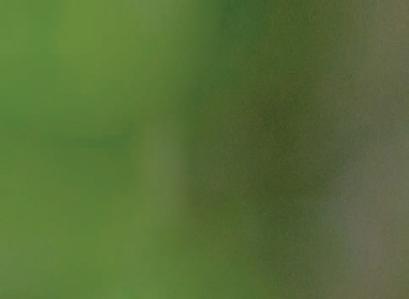

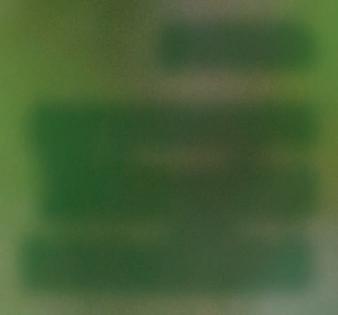

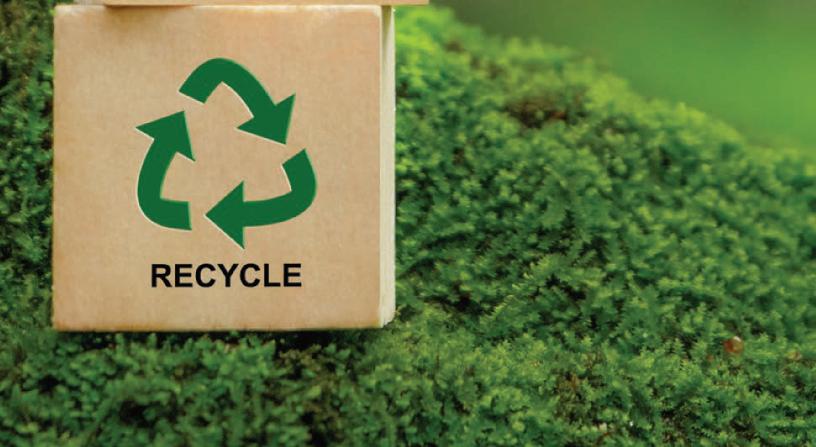
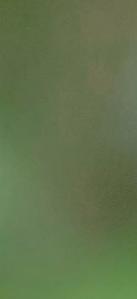

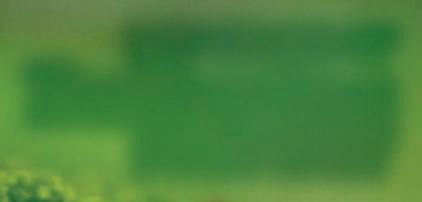
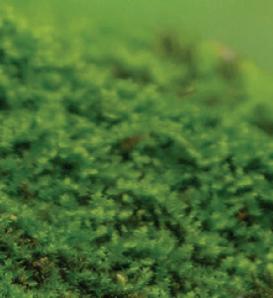

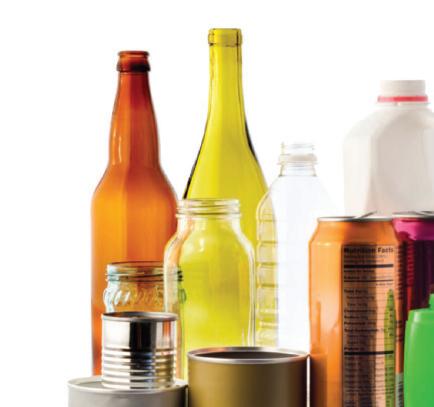

S4 All about PLASTIC
Clearing up the confusion on what can go in recycling.

S6 Recycling’s “Magic” Numbers
What do they mean and can they go in the recycle bin?
S10 What do I do with...?
An A-Z disposal guide.
S20 Benefits of residential solar
Things to consider when going solar.
S22 Batteries
How to dispose of each type properly.
S23 Green farming is growing
Solar power, crop rotation and more!
The Springfield Materials Recycling Facility (MRF) Advisory Board is pleased to share this issue of the Reduce, Reuse, Recycle (RRR) guide as we celebrate the 54th anniversary of Earth Day. This guide is full of useful information. I encourage you to keep a copy handy so you can refer to it all year long.
In this issue of the RRR Guide, we are focusing on all topics MRF related from operations to education. Continue reading to learn more about how to keep your home, MRF workers, and fire crews safe from potentially dangerous battery fires. Explore some of our newest educational materials both in print and videos, and translated into several languages. Are you still confused about plastics? Learn how to think “bottles, jars, jugs and tubs”, rather than numbers. If in doubt visit the “What Do I Do With…?” piece in this publication and/or MassDEP’s fabulous resource RecycleSmart.
The Springfield MRF continues to be the cornerstone of recycling for 66 communities in Western MA, processing an impressive 17,000 tons of dual stream recyclables each year. As Chair of the MRF Advisory Board, I am very proud of the Board’s work particularly as it relates to public education as well as the work the Board does in collaboration with the MRF operator, Waste Management Recycle America. For 35 years, this public-private partnership model has served the region well.
We are pleased to celebrate this 16th edition of the Reduce, Reuse, Recycle Guide in partnership with The Republican, and send special thanks to the Western Massachusetts business community that makes production of this useful resource possible through their advertising support.
Sincerely,
Arlene C. Miller
Arlene C. Miller Chair, MRF Advisory Board
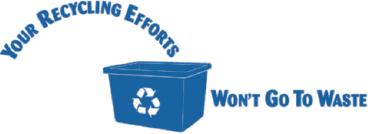

S24 Household hazardous waste
Chemicals and mercury containing items and proper disposal.
S26 Recycling’s most UNWANTED
Items NOT able to be recycled.
S27 Educational resources in recycling
New educational video project and more.
S28 Think Green
Facts about the environment.
S30 Community recycling info
Waste collection programs by town.
This guide marks the 16th year of a collaborative effort between The Republican and the Springfield Materials Recycling Facility (MRF) Advisory Board, with support from local advertisers. The guide is produced annually in honor of Earth Day (April 22) and will be available all year at springfieldmrf.org.
MRF Advisory Board members, Jan Ameen (Franklin County Solid Waste Management District), Tracy DeMaio (Hampden County), Amy Donovan (Franklin County Solid Waste Management District), Cristina Ferrera (City of Springfield), Abbey Massaro (Hampden County), Arlene Miller (Hampden County), Mary Stucklen ( Berkshire County), Ethan Tupelo (Hampshire County), Laurie Simmons (Hampshire County), Susan Waite (Mass DEP), and the RecycleSmart Team at MassDEP wrote or contributed to the publication.
Arlene Miller, Chair of the Advisory Board says, “It is our hope that both residents and businesses continue to find the Reduce, Reuse, Recycle Guide a valuable tool in managing wanted and unwanted materials. We appreciate the advertisers who make this publication possible. Please support our advertisers and tell them you saw their ad in this Recycle Guide! “




For 50 years, USA has been at the forefront of waste and recycling innovation.
And while a lot has evolved over the last half centur y, one thing has always remained constant — our commitment to the customers we ser ve and the communities we call home. It’s this ver y promise that drives us to stay on the leading edge of our industr y and continually find new and bet ter ways to ensure a healthy planet for generations to come usarecycle .com
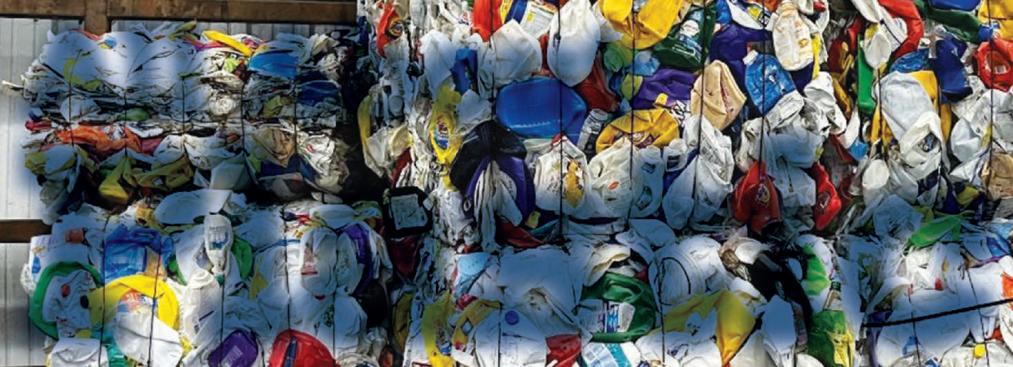

We get a LOT of questions about plastics here at Recycle Smart MA, and we understand why. There’s a lot of confusion about which plastics can go in the recycling and which can’t. There’s also a fair amount of confusion about why some plastics are a yes and others are a no. And finally, there’s the whole question about whether plastics get recycled at all.
This month, we’re taking a deep dive into how plastics are sorted at material recovery facilities and how that process determines which plastics can and can’t be recycled. There’s a method to the madness – we promise!
Who/What/How/Why –Decisions About
Most of us agree that recycling is good for the planet, but it’s also a science and a business. Despite our fervent wish that everything could be recycled (where’s a genie when you need one!), safety, chemistry, mechanics, and markets must all be taken into consideration. To boil it down, the Material Recovery Facility (MRF) operators use three criteria to determine whether a material is acceptable.
The three criteria
Understanding these criteria can shed some light on why we can’t recycle everything made of plastic (or metal, glass, & paper) despite what some package labels suggest. Let’s dig a little deeper.
This is kind of the no-brainer criterion. If the material can explode, cause a fire, physically harm a worker, or is in any way potentially hazardous to the staff or MRF equipment, it should not go in the recycling. Period.
If you’ve ever taken a tour of a MRF, you know that the mechanical engineering involved is pretty cool. There are conveyor belts, magnets, optical sorters, people sorters (called pickers), and blowers, all used to move 3D and 2D objects into the right buckets before they are crushed into 2,000 pound cubes (called bales) and sold to recyclers.
You might be wondering why, with all that technology the MRFs can’t sort every type of plastic no matter the shape,
color, or size. The answer is in the mechanics. MRFs are engineered to sort the most common types of plastics for which there are strong and consistent markets. Sorting equipment costs millions of dollars and is built to last 10+ years. Meanwhile, the packaging used for our food and household products is constantly evolving. Not too long ago, metal cans and glass bottles and jars were commonplace on store shelves. Now, multi-layer, shelf-stable boxes (aka aseptic packaging) hold everything from soup to wine, and plastic pouches abound. While there are environmental advantages to making packages smaller and lighter, MRF sorting equipment simply can’t adapt to all the new types of packaging in real time.
Putting the RIGHT stuff in your recycling bin helps the MRF run smoothly and ensures they produce a product they
can sell, which in turn, supports the circular economy. That’s why criterion 2 – MRF Technology – is a vital part of the equation.
Recycling is a Business
Some plastics simply don’t pay. Low value plastics such as polystyrene and complex packaging like pouches are not a desirable feedstock for making new products because of their chemical and physical characteristics. There are currently no markets for those materials in MA so they end up in the trash. That said, the vast majority of the plastic containers holding our food, beverages, personal care products and household cleaners are made of high-density polyethylene (HDPE), polyethylene terephthalate (PET), or Polypropylene (PP) which are high quality plastics with consistent markets. Market values cycle up and
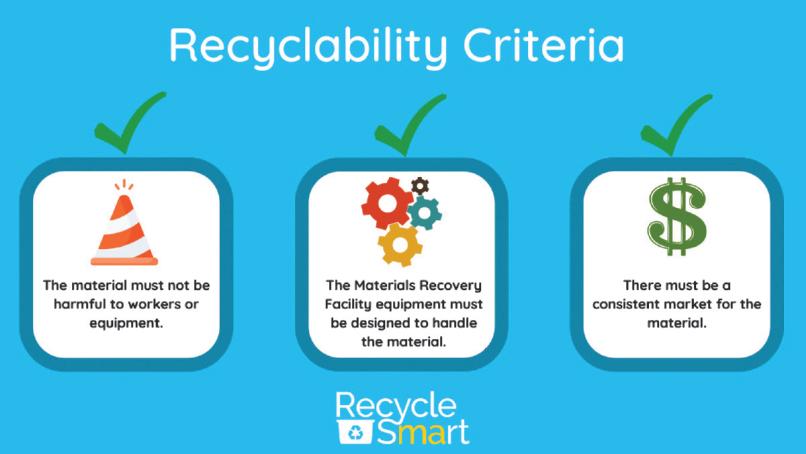
down according to supply and demand, but the operative word in criterion 3 is “consistent.” The reason the MRFs are engineered to sort and capture specific types of plastic is because there has been consistent demand for those plastics for many years. Fun fact: In the past few years, demand for PP (found in tubs, lids, and certain plastic take-out containers) has strengthened in the eastern U.S. That’s why MRFs in Massachusetts are positively sorting this plastic, while in other parts of the country, PP containers are not accepted for recycling.
US Companies Want Our Recycling!
Currently, Massachusetts MRFs sell sorted plastic to recyclers right here in the USA. Companies like EFS Plastics, KW Plastics, Unifi and Trigon Plastics buy, clean, flake, or pelletize plastic into a raw material for making new consumer products, packaging, automotive parts, construction materials, and even 100% recycled Adirondack chairs. There are many videos online that show the process of creating new products from recycled materials. Check one out!
It’s not always easy to know if something is recyclable, but we do have a rule of thumb to try to make it a little easier for you. If it’s a hard plastic bottle, jar, jug, tub, or deli container, it can go in the recycling. Thanks for your efforts to recycle correctly!
The regional materials recycling facility (MRF) in Springfield sorts, bales, and sells recyclable paper and containers from over 73 Western Massachusetts communities. Owned by the State of Massachusetts and operated with guidance from the Department of Environmental Protection and a local advisory board, the Springfield MRF has processed over one million tons of Pioneer Valley recyclables since it opened in1989.
The regional materials recycling facility (MRF) in Springfield sorts, bales, and sells recyclable paper and containers from over 73 Western Massachusetts communities. Owned by the State of Massachusetts and operated with guidance from the Department of Environmental Protection and a local advisory board, the Springfield MRF has processed over one million tons of Pioneer Valley recyclables since it opened in1989.
Please recycle these items:
YES! Please recycle these items:

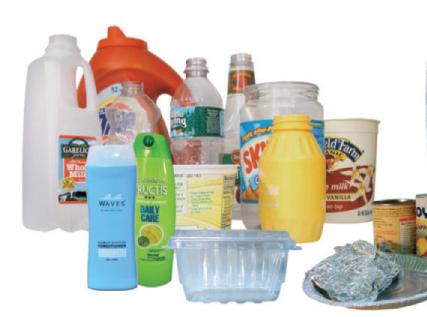
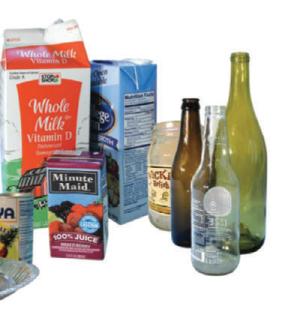
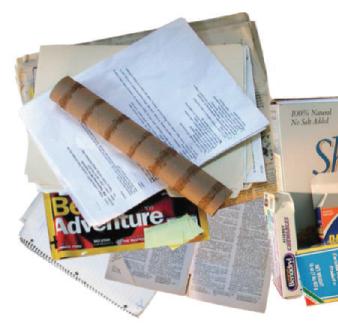
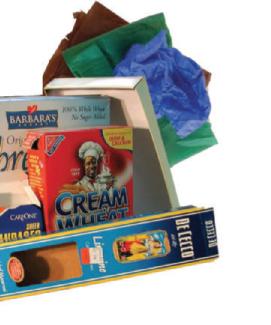
WE PROCESS YOUR HOUSEHOLD CONTAINERS AND PAPER.
Metal cans, foil, milk and juice cartons, glass bottles and jars, plastic bottles/jars/tubs/jugs, clear plastic hinged containers (clamshells). Labels and caps on bottles are okay. Clean papers, magazines/catalogs, greeting cards, gift wrap & gift tissue paper (no foils or metallics), paperbacks & phonebooks (covers okay), cardboard, paperboard, empty pizza boxes. Paper clips, staples and metal spirals are okay.
the
plastic bags, hoses and
lights cause safety hazards and shutdowns when they wrap around conveyor belts and equipment. Plastic bags, holiday lights and textiles can be recycled and/or donated in other locations. This NO list is not all-inclusive.
At the recycling facility, plastic bags, hoses and holiday lights cause safety hazards and shutdowns when they wrap around conveyor belts and equipment. Plastic bags and holiday lights can be recycled and/or donated in other locations. Rechargeable batteries should never go in any trash or recycling bin. It only takes one damaged, defective or recalled battery to combust without warning placing residents, workers and fire crews at risk.
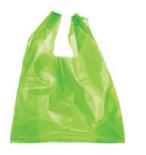
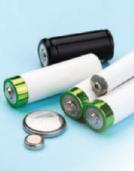
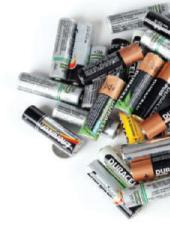
A FIRE
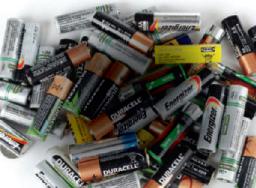




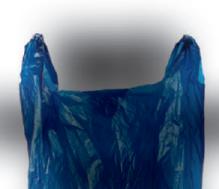




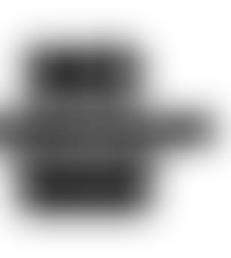
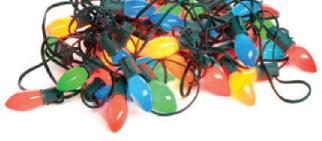
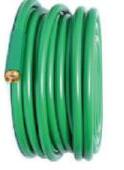

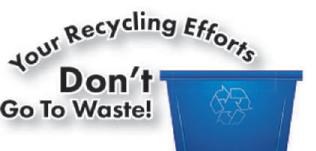
You know the little numbers on the bottom of plastic containers? Which ones are okay to put in the recycling bin?
If you said “1s and 2s,” we hate to break it to you. That was a trick question!
Rest assured, there’s good reason for our collective confusion about those little numbers (it’s not just you!). We’ve been led to believe they are a helpful shortcut for determining if something is recyclable, but that’s only sometimes true. So, why are they there? What do they mean? And what is the best way to know if something will be recycled? Read on to find out.
Advent of Modern Recycling
It seems unthinkable now, but in the mid-1980s no one was thinking about recycling plastics. There was no infrastructure for recycling like we have today - no trucks picking recyclables up and no material recovery facilities (MRF) to sort them. Even if we had wanted to recycle plastics back
then, it was costly, inefficient, and, frankly, cheaper to make plastics from virgin materials. So where did the notion of recycling plastics come from?
From the plastics industry!
It’s true. Back in the late 80s/ early 90s, use of plastics was on the rise. Things that had traditionally been made of paper (like grocery bags) were being converted to plastic and it was worrying environmentalists. There was talk of bans on plastic bags and Styrofoam because of concerns over litter and the growing amount of trash we were producing. (Doth history repeat itself, or merely rhyme?)
To redirect the narrative, the plastics industry began running ads on the virtues of plastics and heavily promoted the idea of plastics recycling. It was a great concept and a shrewd move by the plastics industry. Consumers felt good about buying plastics because they believed they were making an environmentally friendly choice. Everyone started to believe that it was only a matter of time before all plastics would be recyclable. Even Greenpeace and other environmental groups jumped aboard the plastics recycling barge (so to speak).
Modern recycling was born.
You might be wondering where the numbers come in. Well, in order to build interest in and infrastructure for plastics recycling, the Society of the Plastics Industry (SPI), the trade organization for plastics producers, had to develop a way to identify plastics so that they could be sorted efficiently. Enter, the numbering system. [SPI is now known as the Plastics Industry Association, or PLASTICS.]
The numbers on the bottom of nearly every plastic container and package we touch are known in the industry as resin identification codes (RIC). Each number (1-7) represents the kind of resin used in the manufacturing of a product or package. They do not indicate whether something is recyclable.
Note the toothpaste tube under HDPE. While HDPE, PET, and PP all have consistent markets in MA, not everything made from those resins can be recycled. Flexible plastics like tubes have a different melting point than rigid containers, which makes them undesirable in the recycling. When in doubt, ask yourself: Is this a
bottle, jar, jug, or tub? And of course, check the Recyclopedia at recyclesmart.org
And yet, many of us believe that the RIC is shorthand for “recycle this!” It’s no surprise we’re all confused. The issue is that those little numbers (which do serve a purpose) are wrapped up in the very recognizable international recycling symbol, a triangular logo comprised of three clockwise “chasing arrows,” also known as a Möbius loop. And that symbol definitely gives the impression that something should be recycled.
So then why include the chasing arrows if the code is only meant to identify the type of resin? According to a 1993 white paper produced by the SPI and the National Recycling Council, the arrows “helped to indicate that the container was potentially recyclable.” It was a subtle, yet intentional message, developed at a time when there was little to no plastic recycling. Unfortunately, the operative word - potentially - was lost on most consumers. It just doesn’t jive with what we’re seeing, which is very clearly the recycling symbol.
At this point, you’re probably wondering why we still use the RIC with the chasing arrows if it doesn’t mean that something is recyclable. The reason: It’s the law. Thirty-six states still require the use of the RIC on certain plastic containers, and the laws spell out how the symbol should look (including this language found in Mass General law Chapter 94 Section 323A: Such code shall consist of a number placed within a triangle of arrows and letters placed below the triangle of arrows.) According to a story on Planet Money from 2020, those laws were the result of lobbying by the plastics industry. Conversations with lawmakers apparently did not include environmental groups, who considered the use of the chasing arrows a problem.
As far back as 1994, SPI and the National Recycling Council acknowledged that the symbol was causing confusion. Notably: “The code lacks technical specificity. Sometimes plastic resins coded with the same number cannot be recycled together; and consumers are misinterpreting the chasing arrows. Not all local recycling programs accept materials with the chasing arrows.” While there were discussions about
improving the code or eliminating it 30 years ago, it didn’t happen. We are still dealing with the confusion because few states have repealed their laws.
Greenwashing: the act or practice of making a product, policy, activity, etc. appear to be more environmentally friendly or less environmentally damaging than it really is. Some manufacturers claim their products are 100% recyclable just because of their resin codes. This is despite having no practical evidence that a material recovery facility can properly sort them out, or that plastics recyclers can efficiently and economically recycle those products. Examples include the plastic insulation in food delivery boxes, toothpaste tubes, and the blue garbage bags marketed as “recycling bags.” While those products may be 100% PET or HDPE and recyclable in a lab (or “potentially” recyclable at the curb in some places), they are not recyclable in typical recycling programs today.
Misleading claims of product recyclability are not limited to the resin codes on plastics. Greenwashing abounds in labels claiming products are “eco-friendly” or “all natural,” and in corporate sustainability goals that are never met. Further, it isn’t just plastic products making those claims. Paper products also have misleading labels sometimes.
All of this leads us to our main point: We need to rethink how we consider symbols and claims of recyclability on packaging. There are no magic numbers, no magic slogans. The best place to look for information about what can be recycled in MA is the Smart Recycling Guide and the Recyclopedia. The Smart Recycling Guide pictures common recyclable items and is pretty comprehensive. The Recyclopedia offers even more information. Both can be found at recyclesmartma.org
We also need to reconsider our wishcycling habits. That is,
the idea of putting something in the recycling with the hope that it is recyclable or with the belief that somewhere, someone will sort it out. We promise we’re not calling you out, we have ALL done that! But, wishcycling is counterproductive. Not everything made of plastic is meant to be recycled nor can be.
If you want to be mindful of your waste, your best bet is to consider the environmental impact of what you’re purchasing. When it comes to packaging, refuse it, or consider refillable options. Take the extra effort to repair, donate, gift, or find a recycler whenever possible. And if you need to put something in the trash, that’s okay!
If all this talk about poor labeling is frustrating you, you are not alone! The good news is that there are states pushing back on false claims of recyclability. Last summer, Connecticut’s Attorney General, William Tong, sued Reynolds over claims that Hefty bags “falsely and deceptively marketed Hefty ‘Recycling Bags’ despite full knowledge that their bags were incompatible with recycling facilities in Connecticut. In fact, these ‘recycling’ bags are no more recyclable than any other Hefty garbage bag product.”
In October 2021, California Governor Gavin Newsom signed into law “The Truth in Labeling for Recyclable Materials” bill, SB 343. The law “targets inaccurate and misleading product labeling to eliminate confusion about which plastics are recyclable and which are not.” The law went into effect Jan 1, 2024, and raises hopes for better recycling labels across the US come 2024.
For our part, Recycle Smart MA is dedicated to sharing accurate information about recycling in MA. Our goal has always been to educate the public about what can and cannot go in the recycling because we don’t want to burn or bury materials that are valuable feedstock for the circular economy.
Did you know that nearly 40% of what MA residents and businesses send to landfills and incinerators is recyclable? That includes cardboard, paper, plastic beverage bottles, glass containers, and aluminum and metal cans - the easy stuff! The
truth is, we have a long way to go to improve our recycling of the “core” materials. And though we can’t recycle everything, we can certainly recycle more, so please continue to recycle 100% of what can be recycled and follow us to stay up to date on all things recycling in MA. Transparency is important.
We hope that by understanding that a lot of what we purchase is NOT recyclable, residents will consider different packaging options, or refusing unnecessary packaging altogether. We want you to feel good about what you put in the recycling bin, because recycling is worth it!
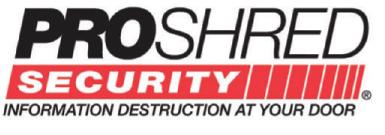
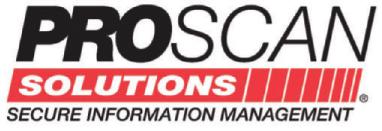

Climatizar su hogar es el primer paso para ahorrar energía.
Los patrocinadores de Mass Save® tienen programas para ayudarle a ahorrar en el costo y consumo de energía en su hogar, desde el sellado de fugas de aire hasta aislamiento y más. Estos son los beneficios de climatizar su hogar:
• Reduce los costos de calefacción y aire acondicionado hasta en un 20%
• Disminuye las corrientes de aire para mejorar el confort y el nivel de humedad durante todo el año
• Minimiza el ruido exterior para crear un ambiente más sereno y apacible en su hogar
• Previene los alergenos e impide el ingreso de plagas
• Reduce la formación de acumulaciones de hielo, protegiendo su hogar de posibles daños
Llame al 866-527-7283 o visite MassSave.com/hea para obtener más información y solicitar una evaluación de energía de su hogar.
WE ARE MASS SAVE®: SOMOS MASS SAVE®:


From air sealing to insulation and beyond, discover programs from the Sponsors of Mass Save® that can help you save energy and money. Here’s how weatherization can help your home:
• Lower heating and cooling costs by up to 20%
• Decrease drafts to improve comfort and humidity all year long
• Minimize outside noise for a quieter, more peaceful environment
• Prevent allergens and pests from entering your home
• Reduce the chance of ice dams—protecting your home from potential damage
Call 866-527-SAVE or visit MassSave.com/hea to learn more and sign up for a Home Energy assessment today.
WE ARE MASS SAVE®:

This A-Z disposal guide was designed to provide reuse, recycling or disposal options for items that are not accepted in municipal recycling, or to provide more information for some of the accepted items. For information on what to put in recycle bins, and what to leave out, see the “Recycle in Western Mass” graphic at springfieldmrf.org/docs/ postcard-mar23.pdf
= Items that are hazardous or require special handling.
Empty aerosol cans belong in the trash, unless they contain hazardous material (e.g. paint, insecticide), in which case they are classified as household hazardous waste (see the Household Hazardous Waste Event page in this guide). A handful of transfer stations/ recycling centers accept completely empty, non-hazardous aerosol cans in scrap metal dumpsters (empty cans are completely silent when the button is pushed). See the Community Recycling Information table in this guide for local disposal information. More info: mass.gov/info-details/safely-manage-hazardous-household-products.
ALUMINUM FOIL, CANS & “DISPOSABLE” PANS
Rinse clean & recycle with bottles & cans. Acceptable items include aluminum pie pans and take-out containers, disposable roasting pans, and clean aluminum foil (form it into a loose ball no smaller than 3”). The “foil” lids from yogurt containers should not be included, as they contain a layer of plastic that causes issues when the aluminum is melted down.
ALUMINUM SIDING
(see “Scrap Metal”)
AMMUNITION, EXPLOSIVES
Call your Police Department for proper disposal instructions.
ANTIFREEZE
(see “Automotive Products”)
APPLIANCES
(see “Scrap Metal”)
ARTS, CRAFTS & HOBBY ITEMS
Some paints, solvents and related materials are considered hazardous and should be brought to a hazardous waste collection. Always check the label before tossing in the trash. See the “Household Hazardous Waste” entry and the Household Hazardous Waste Event page in this guide for information on local hazardous waste collections. Crazycrayons.com offers a crayon recycling program.
ASBESTOS
There are strict removal & disposal requirements for asbestos. Contact the Western Region of the Mass Department of Environmental Protection: John Moriarty: john. moriarty@mass.gov, 413-7841100. To find licensed asbestos contractors, go to mass.gov and type “Asbestos Contractors” into the search bar.
AUTOMOBILES
(see “Vehicles”)
AUTOMOTIVE PRODUCTS
Automotive products contain hazardous materials & must be handled with care. Do not dispose of in the trash, on the ground or down the drain. Plastic automotive product jugs that are empty and well drained belong in the trash (replace caps first). Do not recycle them. Many towns accept automotive products at transfer stations or hazardous waste collections. See the Community Recycling Information table and Household Hazardous Waste Event pages in this guide.
• Motor oil
Even a small amount of improperly disposed of motor oil will contaminate water & soil. In Massachusetts, retailers that sell motor oil are required by law to accept up to two gallons of used oil at no charge with an original sales receipt. Many auto
supply stores, auto repair shops and quick oil change chains will accept used oil even if you didn’t buy it from them. Many towns accept motor oil at transfer stations or hazardous waste collections. For assistance, call the MassDEP Used Oil Hotline at 617-556-1022.
• Motor oil filters
Some auto supply stores (e.g. AutoZone) or auto repair shops accept oil filters for free recycling. Some municipal transfer stations accept motor oil filters. Oil filters may be thrown away or recycled in scrap metal collections only when the oil has been completely drained (while filter is still warm, puncture the dome top & drain into a collection container. Collect oil drips and dispose of properly as used motor oil; see above entry).
• Antifreeze
Antifreeze is not only hazardous; its deceiving color & sweet taste may attract children, pets & wild animals. Consider having your vehicle’s radiator flushed at a service station to avoid the responsibility associated with proper storage & disposal. Some auto supply stores accept antifreeze for free recycling. Antifreeze should be brought to a household hazardous waste collection; see the Household Hazardous Waste Event page in this guide.
• Brake fluid Brake fluid is hazardous and must be brought to a household hazardous waste collection.
(see “Plastic Pouches”)
BAGS
(see “Plastics”)
BALLASTS
(see “Mercury & Mercury-containing Products”)
BATTERIES
Never put batteries of any type in a regular recycling bin, as some batteries pose a fire danger in collection trucks and recycling facilities. Common
single-use household batteries (alkaline, carbon zinc and zinc chloride in sizes A, AA, AAA, C & D, 9-volt, lantern size) manufactured after 1996 don’t contain mercury or other hazardous/recyclable materials & can be thrown away as trash. (Before disposal or storage of 9-volt batteries and lantern batteries, put plastic packing or electrical tape on the contacts.) Check labels carefully; some batteries that require special handling resemble alkaline batteries.
ALL other battery varieties contain hazardous materials and require special disposal. Never put these batteries in recycling or trash bins.
There are many free, convenient drop-off options for batteries, such as municipal transfer stations, Staples, Home Depot, and Lowe’s Stores. See the Community Recycling Information table in this guide or search online with your zip code at earth911. com. Some hazardous waste collections accept batteries; see the Household Hazardous Waste Event page in this guide. More options for specific batteries:
• Button batteries (found in watches, hearing aids, electronics & some toys) are accepted free of charge at watch/jewelry shops or audiologist offices.
• Lead acid batteries (used in vehicles, boats, motorcycles, kids’ ride-on toys, lawn mowers, exit lights and UPS power backups) will be accepted by the retailer from whom you buy a new one (they are required to take one back at no charge). Scrap metal recyclers typically pay for lead acid batteries. Many transfer stations accept them.
• Lithium batteries (single use battery often used for cameras) can resemble alkaline batteries, but these should be recycled properly: some municipalities accept them in battery recycling programs. Check all batteries carefully before disposal; look for “Lithium”
on the label.
• Rechargeable batteries contain heavy metals and can start fires; they should never be put in trash or recycling bins. Rechargeable batteries are found in rechargeable electronics such as cell phones, cordless phones, power tools, laptops, tablets, UPS battery back-ups, rechargeable toys, baby monitors, solar lights, robotic vacuum cleaners, emergency medical equipment, e-bikes, digital cameras, camcorders, rechargeable devices such as toothbrushes, razors, cordless drills, flashlights and hand-held vacuum cleaners, plus batteries that can be recharged with a battery charger. Most transfer stations have special pails or boxes for rechargeable batteries, as do Home Depot, Lowes, and Staples stores. Rechargeable battery chemistries include Nickel Cadmium (Ni-Cd), Nickel Metal Hydride (Ni-MH), Lithium Ion (Li-ion), Nickel-Zinc (Ni-Zn), and small Sealed Lead Acid (Pb) batteries (up to 11 pounds). Rechargeable batteries are sometimes labeled “mAh” or “RECYCLE - RBRC” in a circular logo. For more information and options for recycling rechargeable batteries, visit: call2recycle.org.
• Lithium batteries pose fire risk: if a lithium battery becomes swollen or damaged, handle carefully and bag separately, then place battery in a metal canister or glass jar surrounded by clay kitty litter or speedy dry. Bring to your town’s transfer station or hazardous waste site.
It may look recyclable, but beer and soda cartons or cases contain plastic or bonding chemicals so that they stay strong when wet. The plastic and chemicals contaminate recyclable paper. Please place all “paper” beer and soda packaging in the trash.
Plastic six-pack rings and fourpack “snap top” can carriers are not accepted in household recycling. Flexible plastic sixpack rings get wrapped around sorting equipment at recycling facilities and pose a danger to wildlife. Cut up rings and put in the trash or collect and mail six-pack rings to the RingRecycleMe program (ringrecycleme. com).
“Snap top” six or four-pack can carriers are often made with 100% recycled plastic, which provides a market for recycled plastic. However, snap tops are not acceptable in recycling because their size and shape make them challenging to sort. Mass Brew Bros has established a can carrier reuse program; save your snap tops and find a drop off location near you at: massbrewbros. com/can-carrier-recycling and paktech-opi.com.
Working bicycles in good condition may be gifted to individuals via an online sharing group (e.g. a “Buy Nothing” Facebook group or Freecycle. org), or offered to charities (search online via “bicycle donation”) and other organizations that will use them. For recycling options, see “scrap metal.”
See disposal suggestions under “Vehicles.” Metal boats are accepted at scrap metal dealers, while other varieties are sometimes accepted as bulky waste at municipal transfer stations (call to inquire, see local contact info in the Community Recycling Information table in this guide). All engine-type fluids must first be drained and properly disposed of.
Books in good condition may be sold (used bookstores, tag sales), donated (public libraries, fund-raising sales, drop boxes at transfer stations), or shared (book exchanges, swap shop). Little Free Library book-sharing boxes allow anyone to leave or take books for free; see a map of locations at: littlefreelibrary.org/map. Roundabout Books, a Greenfield-based bookstore accepts
dry books in any condition and has a special arrangement to recycle unsalable books of any type, including hardcover (roundaboutbookstore.com).
If not suitable for reuse, paperback books & phonebooks are accepted in household recycling programs, in small quantities. Hardcover books are not accepted in household recycling programs; rip out the pages and recycle those. Covers and spines from hardcover books must be placed in the trash.
Plastic caps & lids are recyclable only when fastened to a plastic bottle, jar, jug, or tub. Loose plastic caps should be placed in the trash as items less than 3” in diameter can create safety hazards and shutdowns at recycling facilities. Metal screw-top lids from glass jars (e.g. pasta sauce, pickle jar) should be attached to the container. Loose metal can lids are acceptable, but it is best to push them inside the can prior to recycling.
• Clean cardboard, boxboard, and paperboard boxes are recyclable (e.g., boxes from cereal, crackers, tissues, shoes, gifts, etc.) Attached plastic windows may stay, but discard all plastic liners. Flatten.
• Pizza Boxes are recyclable, as long as they are empty. A 2020 study found that greasy pizza boxes do NOT cause problems for recycled paper manufacturers. It is now OK to put the entire empty pizza box into recycling (remove all crusts, food, foil, plastic, or waxed paper). Link to the study: tinyurl.com/pizzaboxes2020
• Frozen food boxes, ice cream cartons, case boxes from soda or beer, and kitty litter boxes should be placed in the trash. These boxes are made with “wet strength paper,” which contains plastic or bonding chemicals that help the boxes to stay strong when wet. The plastic and chemicals contaminate recyclable paper. Do not put
wet strength paper items in home compost bins or municipal or commercial compost programs.
BUBBLE WRAP & INFLATED PLASTIC PACKAGING (Air pillows) (see “Plastics”)
Construction & demolition (“C&D”) waste includes asphalt, asphalt shingles, bricks, cement, cinder blocks, clapboard, concrete, doors, flooring, insulation, lumber, mortar, plaster, plywood, roofing, sheetrock, tiles, windows
& wood. Fee-based disposal options are available at many recycling/transfer stations; for more information, call the phone number listed for your town in the Community Recycling Information table in this guide. Vehicles with a capacity greater than 5 cubic yards are subject to strict SEE WHAT, PAGE S12
Say goodbye to doing it all yourself.
We offer a wide range of convenient products & services:
• Printing & document finishing
• Packing & shipping
• Notary services*
• Packing & shipping
• Postal solutions
• Notary services*
• Fax & scanning services
• Postal solutions
• Fax & scanning services
• Mailbox services with package acceptance from all carriers
• Mailbox services with package acceptance from all carriers
We look forward to serving you.
*Available at participating locations.
We look forward to serving you. The UPS Store® locations are independently owned and operated by franchisees of
disposal requirements for C&D wastes in MA. For more information: mass.gov/lists/ managing-construction-demolition-cd-wastes.
Used building materials in good condition can be donated to a reuse store such as Eco Building Bargains. Call prior to delivery to confirm that your materials will be accepted, or to arrange for free pickup. Items might be tax-deductible.
• EcoBuilding Bargains, 83 Warwick St., Springfield, MA (413-788-6900; ecobuildingbargains.org) Wooden pallets can be reused or recycled as “clean wood waste.” Disposal options for large quantities include (but are not limited to)
• Martin’s Farm (Greenfield: 413-774-5631), 360 Recycling (Westfield: 413-5620193).
Note: pressure-treated wood should only be disposed of in a landfill. Do not put it in a backyard compost pile, a brush or chipping pile; do not burn it. For bulky waste disposal at local transfer stations, see the Community Recycling Information table in this guide.
Staples stores, Best Buy stores, and many electronic waste (e-waste) recycling programs accept digital cameras for free recycling.
Car seats are not accepted in household recycling programs. Used car seats should not be accepted (or purchased) for reuse at second-hand stores or swap shops at municipal transfer stations, as it’s impossible to know if they have been recalled or were previously damaged in an accident.
Once a year (typically in April) Target hosts a car seat trade-in event (tinyurl.com/ TargetCarSeatRecycle). Target accepts all types of car seats for recycling, including: infant car seats, convertible car seats, car seat bases, harness or booster car seats, as well as car seats that are expired or
damaged. Materials from the old car seats are recycled by Waste Management (WM) to create new products such as pallets, plastic buckets, steel beams, and carpet padding. Target will reward those who bring in a car seat with a 20% off coupon good towards a new car seat, travel system or similar.
Flor® offers a free mail-back recycling program for carpet squares (flor.com/recycle). Some nonprofit organizations accept relatively clean carpet for reuse. For local disposal information, see the Community Recycling Information table in this guide.
This category includes “gable top” refrigerated cartons used for milk and orange juice, plus shelf-stable “aseptic packaging” for almond milk, soup, and juice boxes. Cartons are acceptable in single stream recycling programs in Western Mass. In dual stream recycling programs, cartons should be recycled along with bottles, cans, and containers. Rinse cartons, discard straws; plastic caps & spouts may remain on carton. Do not flatten.
“Paper” ice cream cartons are not accepted in recycling. Don’t include foil drink pouches (e.g., Capri Sun, Honest Kids) in municipal recycling. See “Plastic Pouches” in this guide for recycling options.
(see “Ink, Printer & Toner Cartridges”)
Cell phones should not be put in the trash due to their reuse value & hazardous/recyclable components. Never put cell phones in recycling bins. Numerous charitable & for-profit organizations accept cell phone donations. Search online using “cell phone donation.” Stores that sell cell phones also accept them for free recycling, and many cell phone manufacturers offer buy-back programs through the mail. Many municipal transfer stations also accept them for special recycling programs, as do Lowes and
Staples stores. For locations, search with your zip code at call2recycle.org/locator or earth911.com.
(see “Yard Waste”)
Terracycle’s Free Cigarette Waste Recycling Program accepts extinguished cigarettes, filters, loose tobacco pouches, outer plastic and inner foil packaging for recycling into plastic lumber and other products. Go to terracycle. com and type “cigarette” in the search bar.
(see “Plastics”)
(see “Household Hazardous Waste”)
As of November 2022, textiles are banned from the trash in Massachusetts. There are many local reuse & donation opportunities for all textiles & shoes. Deliver CLEAN & DRY textiles & clothing to drop-off boxes serviced by organizations such as the Salvation Army (easternusa.salvationarmy.org) and Bay State Textiles (baystatetextiles.com/ locations) & donation centers such as Goodwill Industries (goodwill.org). Many municipal transfer stations host textile drop boxes (see Community Recycling Info table in this guide). DO include items that are torn, stained, with missing buttons or broken zippers, as these organizations sell damaged textiles to recyclers to be made into wiping cloths and insulation. Acceptable items include these CLEAN & DRY items: mismatched socks, shoes and gloves; all clothing and accessories including belts, ties, underwear & purses; and linens such as curtains, toss pillows, light comforters, sheets, towels, and stuffed animals in any condition. Some animal shelters also accept old sheets, blankets, pillowcases, bedspreads, throw rugs & towels for reuse (call first).
To find local clothing consignment stores or quality used clothing, go to thethriftshop-
per.com. See also thredup.com, swap.com, poshmark.com, and wornwear.patagonia.com.
Bras can be donated to Salvation Army or Goodwill; any items that are not in good condition will be baled and sold for textile recycling. New & gently used bras can be mailed to The Bra Recyclers for distribution to women in transition around the world: brarecycling. com; 480-988-2283.
Some local non-profit organizations target specific types of clothing to benefit those in need, such as professional clothing (westernmass.dressforsuccess.org).
Do not put hangers of any type in recycling bins: hangers get caught in machinery at recycling facilities. Metal hangers are accepted for reuse by some dry cleaners & are also accepted in scrap metal recycling dumpsters at most recycling/transfer stations. Unfortunately, plastic hangers are not recyclable and should be put in trash when they are no longer useable. Hangers are reusable; offer via an online sharing group (e.g. Freecycle. org, “Buy Nothing” Facebook group). Some charitable organizations accept hangers for reuse or resale.
COMPACT FLUORESCENT LAMPS (CFLS)
(“see Mercury & Mercury-containing Products”)
COMPUTERS & TV’S (see “Electronics”)
& DEMOLITION WASTE
(see “Building & Remodeling Materials”)
Never pour cooking oil down the drain. Liquids should be kept out of trash, recycling, and municipal compost bins. Lifecycle Renewables accepts vegetable oil by appointment from individuals. It also provides containers and pays for the oil at food service providers: 888-461-9831, lifecyclerenewables.com. Lifecycle Renewables transforms used
cooking oil into replacements for fossil fuels. Western Mass Rendering provides dumpsters for large collections: westernmassrendering.com; 413-5696265.
Corks should never be put in recycling bins, carts, or dumpsters; remove corks from bottles before recycling. Natural corks can be composted via municipal/commercial composting programs or chopped up & added to a backyard compost bin. ReCORK recycles natural wine & champagne corks (no plastic corks or screw caps); multiple local drop off sites are listed at recork.org, including Ryan & Casey Liquors in Greenfield. River Valley Co-op stores in Northampton and Easthampton host “Cork ReHarvest” drop boxes for natural corks (no plastic). There are no local recycling options for plastic corks. Terracycle offers a feebased recycling program for corks of any type: terracycle. com. Reuse is an option; wine corks can be reused in many creative ways (search online for “cork art”).
Not recyclable in municipal recycling programs. Mail-in recycling programs for empty cosmetics containers can be found at terracycle.com and maccosmetics.com/back-tomac
Clear plastic cups are the only type of cups accepted in household recycling (rinse; lids and straws go in the trash). Other types of plastic cups are NOT acceptable for recycling: “Styrofoam”/polystyrene (#6 plastic), colored keg cups, and opaque plastic cups. Mail-in recycling programs for #6 cups can be found at terracycle.com.
If a clear cup is labeled “compostable,” it should NOT go in recycling. Compostable cups are accepted in most municipal or commercial compost programs. “Compostable plastic” products are not designed to compost in home compost bins or piles.
Paper cups, including traditional paper coffee cups, are not recyclable. Plastic coffee cup lids are too small to be recycled. Cardboard sleeves are recyclable. Some paper coffee cups (and some lids) are designed to be compostable in municipal/commercial compost programs; check for text that says “BPI certified” or “compostable.”
Clear plastic egg cartons are recyclable. Paper & Styrofoam™ egg cartons are not accepted in recycling, but are often reused by backyard chicken farmers. Paper cartons may be composted in municipal compost collections or in home compost bins, if ripped into pieces.
State regulations prohibit disposal of screen-based electronics such as laptops, tablets, iPads, Kindles, flat screen TVs, monitors and CRTs (cathode ray tubes) in the trash. Most municipal transfer stations offer electronics recycling programs, although disposal fees may apply; see your
town’s website or call town hall for pricing. Electronics that are mostly metal, such as computer towers, DVD players, and stereo components can also go in scrap metal recycling at transfer stations and recycle centers.
Staples stores accept computer-related electronic waste for free recycling; call your local store for details. Staples does not accept TVs. Best Buy accepts TVs for a fee, and also accepts a wide range of electronic waste for free recycling. For more information, call your local store or visit their website and search for “recycling.”
Computer manufacturers sometimes offer electronics recycling or trade-in programs; visit their websites for details. Various charities and non-profits accept donations of working electronics, including local Salvation Army and Goodwill stores. Always call ahead to ask if they can accept your item.
(CDs, DVDs, VHS, Cassette Tapes)
Do not put electronic media or cases in your household recycling, put them in the trash. CD cases easily shatter, and the glass-like shards create hazards at the recycling facility. Roundabout Books in Greenfield accepts CDs, DVDs, and vinyl records (roundaboutbookstore.com). If selling or donating used media is not an option (some communities accept certain types via book donation programs), greendisk.com and terracycle. com (enter “media” into search bar) offer fee-based, mail-in recycling options.
Contact your local Lion’s Club (lionsclubs.org) for the nearest collection box or mail eyeglass frames and prescription lenses to: Lions Clubs International Headquarters, 300 W. 22nd Street, Oak Brook, IL 60523. In addition, eyeglasses may be dropped in a collection box at a participating Walmart Vision Center. If eyeglasses can’t be reused, put in the household trash, as they are not recyclable.
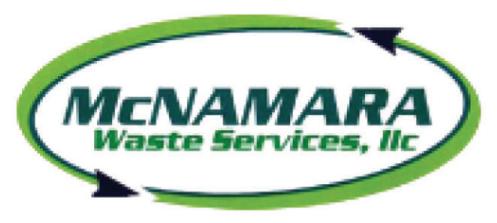
(see “Household Hazardous Waste”)
Fire extinguishers are considered hazardous because their contents are under pressure, and units manufactured prior to 1984 may contain dangerous chemicals. For disposal and recycling:
• Businesses & property managers can contact their fire control service provider.
• Some municipal transfer stations accept newer fire extinguishers for special recycling along with propane tanks; see the Community Recycling Information table in this guide for local contact information.
• Some municipal hazardous waste collections may accept older fire extinguishers: ask before bringing them to a collection.
• MA Fire Technologies (West Springfield, MA) accepts fire extinguishers for a fee (massfire.com, 800-2446769).
• New England Disposal Technologies (Westfield, MA) accepts fire extinguishers for a fee (nedt.org; 866-7691621).
Live fireworks are extremely dangerous and must be disposed of with great caution; call your local Fire Department. Do not throw unused fireworks in the trash or household recycling.
To properly dispose of U.S. flags no longer in usable condition, contact the American Legion, the Veterans of Foreign Wars (VFW), your town hall, or scout troops. Other flags may be recycled in textile recycling programs.
LAMPS (see “Mercury & Mercury-containing Products”)
FOOD SCRAPS (also see “Cooking Oil”)
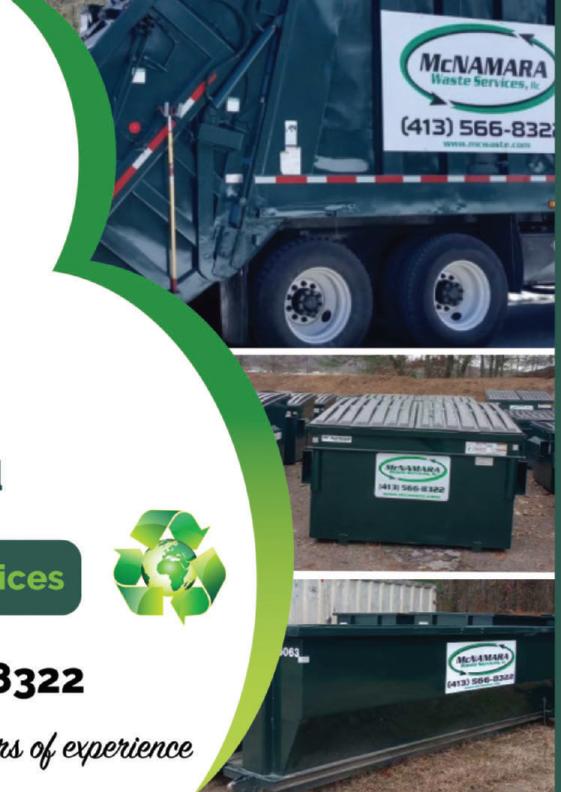
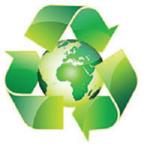
Food scraps and leftovers are heavy to transport and contribute to climate change when they decompose in landfills; composting food waste locally makes better environmental and economic sense. Local composting options include home composting, curbside pick-up by a private waste hauler, and municipal transfer station compost programs (in Amherst, Bernardston, Charlemont, Colrain, Conway, Deerfield, Greenfield, Hadley, Leverett, Montague, New Salem, Northampton, Northfield, Orange, Shelburne, Warwick, Wendell & Whately). Find a private hauler near you at: recyclingworksma.com. Many municipalities offer discounted purchase programs for countertop collection pails and home compost bins; see the Community Recycling Information table in this guide for local contact information. For home composting instructions, visit mass.gov and search for “home compost.”
As of November 2022, Massachusetts businesses, organizations and institutions that create ½ ton of food waste per week are required to keep it out of the trash and instead reduce it, donate it, or send it out for animal feed, composting, or anaerobic digestion. RecyclingWorks in Massachusetts provides free assistance, food waste estimation tools, hauler lists, and more at: recyclingworksma.com
(see “Plastic Pouches”)
Furniture in good condition can be sold, donated for reuse, or offered via an online sharing group (e.g. Freecycle.org or a “Buy Nothing” Facebook group). If not reusable, see the Community Recycling Information table in this guide for disposal information (“bulky waste”). As of November 2022, mattresses and box springs may no longer go in the trash. See “Mattresses” for recycling information.
Acceptable items include glass bottles and jars from food & beverage, household cleaning, or personal care products. Rinse & recycle with containers. Lids can be placed back on item. (Loose lids fall through the sorting machinery.) Do not include corks. Labels need not be removed. These glass items are NOT accepted in recycling: drinking glasses, mugs, plates, vases, candle jars, light bulbs, window glass, mirrors, or Pyrex. Broken glass is also not accepted; wrap and place in trash. Bottle pumps (hand soap, etc.) should go in the trash.
Golf balls can’t be recycled, but they may be reused. Contact local golf courses or driving ranges to see if they will accept them or donate them, along with clubs, to First Tee-Massachusetts programs to empower kids and teens through golf (firstteemass.org; click on “donate”). Some thrift stores will accept clubs for resale.
Cards are recyclable with paper if they do not contain metallic inks, glitter, foil, or batteries. Remove electronics from singing greeting cards & recycle button batteries in battery recycling programs (see “Batteries”). St. Jude’s Ranch for Children runs a mail-in greeting card reuse program; note restrictions on certain brands: stjudesranch.org/recycled-card-program.
(see “Coat Hangers”)
The National Hearing Aid Project accepts used hearing aids for refurbishment and distribution to those that need them: hearingaiddonations. org; 816-895-2410. Also, check with your hearing aid specialist for reuse options. If your hearing aid is not worth salvaging, remove the button battery and recycle it in a battery recycling program (see “Batteries”), then place the hearing aid in the trash.
First, consider using up the
product according to package directions, or giving it away to someone who will use it. Products with label warnings & words like caustic, toxic, corrosive, poison, flammable, danger & “keep out of reach of children” all require special handling. See the Household Hazardous Waste Event page in this guide for information about local household hazardous waste collections in Western MA. New England Disposal Technologies (Westfield, MA) accepts many household hazardous wastes year-round for modest fees (nedt.org; 866769-1621). Empty containers that once contained hazardous wastes are NOT accepted in recycling; replace cap and put empty containers in trash. For safer alternatives to hazardous household products visit: lesstoxicguide.ca, or turi.org/ Our_Work/Community.
Staples and Best Buy stores accept used cartridges for reuse or recycling (and possibly earn store rewards). Other options may be found via a search on earth911.com or find mail-in donation programs online by searching “cartridge donations.” Many manufactures have their own take back programs with free mailing labels. Search online for “(name of manufacturer) cartridge recycling program.”
Unwanted mail & catalogs are recyclable, but it makes more sense to reduce them at the source. Here are four free services to do so:
• Remove your name from commercial mailing lists: directmail.com/mail_preference;
• Stop delivery of unwanted catalogs, enter catalog name at catalogchoice.org;
• End pre-approved credit card & insurance offers: optoutprescreen.com.
Unwanted keys can be recycled via a scrap metal dumpster at a municipal transfer station (see the Community Recycling Information table in this guide,) or brought to a local scrap metal dealer.
(see “Paint & Paint-related Products”)
Light bulbs of all types should be kept out of recycling bins. Fluorescent bulbs, including “CFLs” (compact fluorescent light bulbs) should be kept out of trash.
• Fluorescent bulbs, including compact fluorescent bulbs (“CFLs”) and the green tipped “low mercury” type contain mercury vapor and require special disposal. See “mercury & mercury-containing products” in this guide for more information. Handle carefully to avoid breakage.
• LED light bulbs can go in the trash but contain valuable materials and may be recycled with CFLs, if a collection site accepts them (see “mercury & mercury-containing products”).
• Incandescent light bulbs and halogen light bulbs are not recyclable. Wrap incandescent light bulbs in used paper or plastic before placing them in the trash.
Holiday light strings are NOT accepted in municipal recycling programs because they get wrapped around sorting equipment at recycling facilities, causing hazards for workers. Light strings are usually accepted at scrap metal dealers and in scrap metal dumpsters at transfer stations. Light strings can be mailed to Holiday LEDs (holidayleds. com/free-light-recycling) for recycling; receive coupon for a discount on a future order.
Mail unwanted Mardi Gras beads and trinkets to the Arc of Greater New Orleans’ reuse program: ArcGNO, 925 Labarre Road, Metairie, LA 70001 (arcgno.org; 504-837-5105). Or consider donating to local nursing homes for activities; call first to make sure they can accept.
As of November 2022, mattresses and box springs may no longer go in trash or Bulky
Waste. Mattress recycling is now mandatory in MA, except for mattresses that are contaminated. Some charities will accept mattresses & box springs in very good condition; call first. When you purchase a new mattress, ask the retailer to take back and recycle the old one. Some transfer stations in Western MA accept mattresses for recycling; fees may apply. For local recycling information, including regional drop off sites, search on your town’s website or call your town’s contact number in the Community Recycling Information table in this guide. If your municipality does not have a collection program, call a private hauler to pick up your mattress. For a map of towns and cities with recycling programs, visit mass.gov and search for “mattress.”
Disposal of unwanted medication must be done carefully for several important reasons. Medications should NOT be poured down the drain or flushed down the toilet. Wastewater treatment plants & septic systems are not designed to remove pharmaceuticals from wastewater. Medications should not be thrown in the trash; see below for disposal options.
Help protect the environment and stop prescription drug misuse and abuse. Bring your unwanted, expired, or unused medications to one of the sites below for safe disposal.
Many area police departments offer permanent drop-off boxes for free disposal of prescription and nonprescription drugs, vitamins, and veterinary medications: Agawam, Amherst, Ashfield, Athol, Belchertown, Bernardston, Buckland, Chicopee, Cummington, Deerfield, Easthampton, East Longmeadow, Erving, Goshen, Granby, Hadley, Hampden, Hatfield, Holyoke, Leverett, Longmeadow, Ludlow, Monson, Montague, Northampton, Orange, Palmer, Pelham, South Hadley, Southampton, Southwick, Sunderland, Ware, West Springfield, Westfield, Whately, Wilbraham, and Williamsburg. You do not need to be a resident to use the drop boxes in any of these towns.
Accepted items in police station boxes: prescription and non-prescription drugs, vitamins and veterinary meds. NO liquids, syringes (see ”Needles & Sharps”), IV equipment or chemotherapy drugs. For more information visit northwesternda.org/addiction-recovery/ pages/drug-drop-boxes.
National chain pharmacies host free drop boxes for prescription medications. Call your local store for availability or search a DEA listing of disposal sites at tinyurl.com/ deadisp. For acceptable items, see signage on the drop boxes, call stores or visit pharmacy websites. Some stores that do not have drop boxes offer the DisposeRX program: disposerx.com
National Prescription Drug Take-Back Days are held every April and October. DEA’s next National Prescription Drug Take Back Day is April 27, 2024 from 10 am to 2 pm. Find dates and locations for upcoming collections by visiting deadiversion.usdoj.gov/drug_ disposal/takeback. Take-Back Days accept prescription and non-prescription drugs, vitamins, veterinary medications, and vape cartridges (batteries not accepted; see “Batteries” in this guide). Unacceptable items include liquids, syringes, IV equipment or chemotherapy drugs.
Due to their small size and other factors, empty pill bottles are not recyclable. Be creative with reuse! For example, some animal shelters collect washed, empty pill bottles to send medicines home with adoptees.
Mercury is highly toxic and requires special disposal. It is not hazardous when contained in a sealed device. Reduce exposure by placing items in sealed plastic bags & handling them carefully to avoid breakage. Never put mercury (or items containing mercury) in trash or recycling bins, on the ground, or down a drain. Don’t vacuum even the smallest spill. Instructions for handling mer-
cury exposure can be found at: mass.gov; enter “mercury” in the search bar or search the web for “broken CFL” or “mercury spill.” If a mercury spill does occur, follow the MassDEP’s guide on safely cleaning it up: mass.gov/guides/massdep-mercury-information. Call the Mass DEP Mercury Hotline if you have questions about mercury or managing it safely: 866-9MERCURY (866-9637287).
For local disposal information for the following mercury items, see the Community Recycling Information table and the Western Mass Household Hazardous Waste Event pages in this guide.
• Fluorescent light bulbs
All fluorescent light bulbs (even the low-mercury bulbs with green tips) contain mercury vapor; never put fluorescent light bulbs in trash or recycling. For local disposal information see the Community Recycling Information table in this guide. In addition:
• Businesses can see a list of vendors who can pick up larger quantities at recyclingworksma.com.
• Residents can refer to the MassDEP’s Mercury Disposal Map: tinyurl. com/MassMercuryMap
• For assistance with disposal outlets, dial the MassDEP Mercury Hotline at: (866) 9-MERCURY
Recycling options vary based on the type of bulb:
• Compact fluorescent lamps (CFLs) fit in standard screw-type light sockets & are made of a glass tube, often in a spiral shape. They come in a variety of shapes and sizes and can be encased by an outer glass bulb. CFLs are accepted at most municipal transfer stations (handle carefully and hand to attendant) and some Hazardous Waste Collections. For local disposal information see the Community Recycling Information table and the Household Hazardous Waste Event pages in this guide. Free recycling for CFL bulbs is offered at
Home Depot and Lowe’s Stores. New England Disposal Technologies (Westfield, MA) accepts fluorescent bulbs year-round for various fees (nedt.org; 866-769-1621).
• Larger fluorescent tubes are the types of bulbs that do not fit in standard screw-type sockets. These include long straight tubes, circular or U-shaped tubes, tanning bed lamps, High Intensity Discharge (HIDs), & neon light tubing. Accepted at most municipal transfer stations and some Hazardous Waste Collections; see the Community Recycling Information table in this guide for local disposal information. Straight lamps and all others are accepted free of charge at Lowe’s Stores. Handle carefully to avoid breakage; do not tape bulbs together. New England Disposal Technologies (Westfield, MA) accepts fluorescent bulbs year-round for various fees (nedt.org; 866-769-1621).
• Thermometers
Many older household thermometers (fever, candy, meat, deep fry, oven, temperature) contain liquid mercury. A mercury thermometer can be identified by the presence of a silver bulb at the end of a glass tube. Accepted in special programs at many municipal transfer stations and some Hazardous Waste Collections; see the Community Recycling Information table in this guide for local disposal information. Handle carefully and seal in a plastic bag. If the thermometer liquid and bulb is red, blue, purple or green, it is not a mercury thermometer and it can go in the trash.
• Thermostats
Updating to a programmable thermostat? Don’t throw away your old wall-mounted thermostats: they contain a significant amount of liquid mercury. Leave thermostats in one piece, place in a sealed plastic bag, and handle carefully to avoid breakage. In addition to special municipal collection programs (see the Community
Recycling Information table in this guide), mercury thermostats are accepted for free recycling by some plumbers and plumbing retail stores. For local dropoff locations, go to thermostat-recycle.org.
• Ballasts
Most fluorescent light fixtures produced before 1979 contained ballasts with PCBs (polychlorinated biphenyls), a highly toxic substance. PCB-free ballasts are marked “No PCBs.” PCB ballasts are typically collected in special programs at transfer stations or other sites that collect larger fluorescent tube-type bulbs. Electronic and other non-PCB ballasts are safe to go into trash or bulky waste, but are often not accepted in scrap metal recycling bins. See the Community Recycling Information table in this guide for local disposal information.
MICROWAVES
(see “Scrap Metal”)
MOTH BALLS
(see “Household Hazardous Waste”)
MOTOR OIL & FILTERS
(see “Automotive Products”)
MUSICAL INSTRUMENTS
Hungry for Music (hungryformusic.org) accepts used musical instruments. They distribute instruments to underserved children in the US & abroad. Buy reused instruments locally by searching online.
NEEDLES & SHARPS
MA Sanitary Code states that it is illegal to dispose of sharps (hypodermic needles, syringes, lancets, & all other medical “sharps”) as trash. Never put a container of sharps in your recycling bin. Collection programs are available in many towns; call your Health Department or to see a listing of all the sharps programs in the state, go to mass.gov and type “needle disposal” in the search bar. Sharps containers are available for purchase at pharmacies, and they often include
Some plastic items cause mechanical problems at recycling facilities, cost too much to recycle, are unwanted by manufacturers, or are recyclable only through separate recycling programs. Please do not add these to your household or municipal recycling mix:
• Plastic bags, plastic wraps and other “soft plastics”
• Black plastic (prepared food, to-go containers, microwave trays) (Some facilities are starting to accept black plastics.)
• Forks, spoons, knives & serving utensils
• Plastic items that are smaller than a credit card (e.g. loose caps, straws, condiment cups, Rx bottles)
• Plastic containers larger than 2.5 gallons in size
• Plastic plates
• Colored/opaque plastic cups (clear cups are OKsee the “Cups” entry)
• “Compostable” or “Biodegradable” containers and cups
• Foam (aka Styrofoam) items (cups, egg cartons, food containers/trays, & packing material)
• Tubes (e.g. toothpaste, cosmetics, hair products)
• Plastic containers which once held toxic substances (e.g. motor oil)
• Molded plastic packaging (the stiff type that requires a sharp object to open)
• Binders, plastic folders
• CDs, DVDs and cases, video & audio tapes
• Plant pots & garden trays
• Six-pack rings (see “Beer & Soda Packaging”)
• Hoses, light strings, cords, pet leashes
• Plexiglass
• PVC products (pipes, siding, etc.)
• Manufactured plastic wood (decking material)
disposal options. Several mailin disposal programs are available; search online for “sharps mail-in programs.” Stericycle is an example of a company that picks up sharps for safe disposal from businesses that generate sharps: stericycle. com or 866-783-7422.
(also see “Plastics”)
Online purchasing has increased the amount of packaging in the residential waste stream. Most of these materials are reusable; some are also recyclable:
• Cardboard boxes can be reused. Cardboard boxes should be recycled in municipal recycling programs; flatten if possible.
• Packing paper is reusable as well as recyclable.
• Amazon’s paper mailer that says “Recycle this mailer just like a box” is recyclable in municipal recycling programs.
• Amazon’s plastic mailer and other plastic envelope mailers (single layer or bubble wrap) are recyclable with plastic bags in grocery/ retail store recycling programs only (see “Plastic Bag Recycling at Retail Stores” in this guide). Do not put any plastic mailers, bags, films, or other “soft plastics” in household recycling.
• Plastic “sealed air” packaging and bubble wrap are reusable and are accepted for reuse by some pack & ship stores (such as UPS Stores). Deflated air pillows and bubble wrap can be recycled with plastic bags in grocery store recycling programs (see “Plastic Bag Recycling at Retail Stores” in this guide). Do not put in household recycling programs.
• Paper envelopes with bubble wrap on the inside are NOT accepted in recycling programs. Reuse or put in the trash.
• Meal delivery kits use thermal box liners (e.g. “Renewliner,” “QLiner,” “Climacell”) to keep food fresh. This packaging might claim recyclability, but it is not accepted in household recycling programs. Reuse, refuse (send back to company), or put in the trash.
• Styrofoam™ blocks & shapes: not accepted in household recycling; see “Plastics” for special recycling collections.
• Foam peanuts: not accepted in recycling; see “Plastics.”
• Cornstarch peanuts may be composted in a backyard bin, reused, or placed in the trash. However, these are not accepted by commercial composting facilities or at packing shipping stores.
If your unwanted paint was purchased recently & it’s in good condition, consider donating it for reuse. Many school or community theatre groups will accept quality
paint products. You may also offer useable paint via an online sharing group (e.g. Freecycle.org or a “Buy Nothing” Facebook group).
• Petroleum (oil-based) paints, stains, thinners, & varnishes are considered hazardous materials, requiring proper disposal. See the Community Recycling Information table and Household Hazardous Waste Event pages in this guide.
• New England Disposal Technologies (Westfield, MA) accepts all types of paint year-round for modest fees (nedt.org; 866-769-1621).
• Latex paint & water-based stains can be put in the trash when completely hardened. Speed up the process by adding latex paint hardener (available in hardware stores) or by stirring in clean kitty litter to the consistency of thick oatmeal & allowing the mix to harden. When the contents are no longer liquid, you can put the open paint can (without the lid) in your household trash.
Never place plastic bags of any kind in your home recycling bin!
Please clip and hang this sign over your plastic bag recycling collection at home, in the office, at school, or at a business.
• Bags MUST be empty, clean and dry without receipts, coins, or trash.

• Clean, dry plastic bags labeled #2 or #4: “HDPE,” “PE-HD” OR , “LDPE,” “LLDPE” Including:

• Grocery & produce bags
• Newspaper bags
• Dry cleaning bags (no receipts/staples)
• Plastic cereal bags (if it tears like paper do not include)
• Sandwich/Ziploc bags and bread bags: no crumbs, oils, food (remove large zippers)
• Retail bags (#2 or #4) with string/hard plastic handles removed
• Plastic outer wrap from packages of toilet paper, paper napkins, paper towels, diapers, sanitary products
• Bubble wrap, air pillows, plastic shipping envelopes (deflate air pillows/cut out labels)
• Case wrap from cases of water, canned pet food, soda, etc.
• Stretch wrap from furniture or electronics
• NO bag with a recycling resin code other than #2 (HDPE) or #4 (LDPE)
• NO crinkly grape bags, Lego bags, apple bags (often marked #5)
• NO bags with receipts, coins, trash
• NO bags with food or moisture
• NO food or cling wrap (e.g. Saran)
• NO prepackaged food bags (frozen food or prewashed salad)
• NO pet food, animal feed, bird seed bags
• NO coffee bags
• NO chip bags, granola bar wrappers, candy wrappers
• NO bags with paint or glue
• NO compostable plastic bags
• NO Tyvek™ envelopes
What about pellet stove fuel bags? See “Pellet Bags” in this guide.
To view pictures of acceptable items and get a list of drop off locations, nextrex.com/view/educate#materials1
Trex is the major buyer of plastic film; more resources at: nextrex.com
(see wood under “Building & Remodeling Materials”)
Recycled Crafts recycles pantyhose, nylon knee-highs, and tights into pet toys, rugs, placemats, and table runners. They accept clean hosiery in any condition, even those with rips and snags. Email recycledcrafts@live.com for donation information, or visit: savemyhosiery.yolasite.com. Hosiery is also accepted in textile recycling programs, see “Clothing & Textiles.”
Place clean and dry cardboard boxes, newspaper, office paper, school papers, magazines & junk mail, cereal boxes, and empty pizza boxes in your recycling bin. Avoid items with material that is not wood based, such as greeting cards with glitter, embellishments, metallic ink, or batteries, or items mixed/coated with plastic or glued to plastic (e.g. paper shipping envelopes lined with bubble wrap). Details about some paper items that cannot be recycled are provided as individual entries in this Guide, including shredded paper, hardcover books (see “Books”) and items coated/ mixed with plastic. Examples include paper cups (see “Cups”), beer/soda packaging, and frozen/refrigerated food boxes (see “Boxes”). In dual stream recycling, milk cartons and soup/almond milk boxes should be recycled with containers (see “Cartons”).
Plastic bags should never go into household recycling programs. Some retail and grocery stores will accept EMPTY pellet bags in their plastic bag recycling programs (call first). Pellet bags must be dry and completely EMPTY. Turn inside out, shake out, flatten and stack empty bags, roll up the stack and place the roll in an empty pellet bag. Do not include rubber bands, string, or tape. Ask your pellet supplier about bulk delivery (avoids bags), recycling programs, or bag take back programs.
Plastic bags that contained pet food, animal feed, or bird seed are not recyclable in municipal recycling or in plastic bag recycling programs at retail stores. Unfortunately, neither are paper feed bags because they are lined with plastic to keep moisture out of the feed. Terracycle offers a few pet food bag recycling programs, some of which have local drop-off sites; go to terracycle. com and type “pet food” in the search bar. The Bag Share Project, a local group, may accept certain types of feed bags for reuse, and provides instructions on how to make bags: thebagshare.org
Traditional, glossy photographs are not acceptable in recycling because of the photographic chemical coatings in the paper. Old photographs are safe to throw in the trash. More modern photographs may or may not be recyclable depending on the printing process and the type of paper
used. Home-printed photographs that are printed on regular paper are acceptable in recycling.
A 2020 study by West Rock (a major US corrugated cardboard manufacturer) found that grease on pizza boxes does NOT cause problems for recycled paper manufacturers, as previously thought. It is now OK to put the ENTIRE pizza box into recycling…but it MUST be empty (no crusts, food, foil, plastic, or waxed paper). Link to the study: tinyurl. com/pizzaboxes2020.
Many people assume that all plastic items are accepted in recycling, but recycling is demand-based; only those plastics that can be made cost-effectively into new products are on the “yes” list. Please note that plastic containers from food, beverage, soap and personal care products are the ONLY type of plastic suitable for your household recycling bin. All other forms of plastic must go in the trash or, when
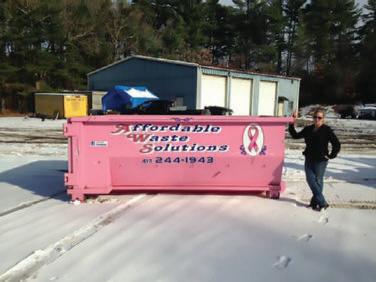
available, to a separate special recycling program. See the box “Keep These Plastics out of the Recycling Bin” for additional details.
Containers from food, beverages, soap and personal products
The following items are welcome in your household recycling bin: plastic containers from food, beverage, soap or personal care products in the form of bottles, jars, jugs, and tubs. Plastic bottle caps & plastic tub lids are recyclable, if attached to the container (not loose). Plastic items that are smaller than a credit card or larger than 2.5 gallons are not acceptable because they cannot be sorted effectively. Bottle pumps should go in the trash. Please note that black plastics are not currently accepted because they can’t be sorted with the optical sorting technology used at most recycling facilities. Some facilities are starting to accept black plastics.
Other items on the recycling “yes” list are clear plastic cups,
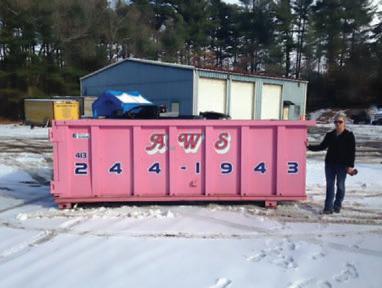
clear plastic clamshells, and clear plastic egg cartons. Cups should ideally be rinsed before recycling; put lids and straws in the trash. If a clear cup is labeled compostable, do not put it in a recycling bin. Visit springfieldmrf.org for details and graphics about household container recycling.
Bags & wrap (Do NOT place in household recycling bin) Plastic bags, plastic films, and plastic wrap (“soft plastics”) create safety hazards, machinery malfunctions, and environmental problems at recycling facilities. Some of these materials are accepted in retail and grocery store collection programs (e.g. Big Y, Stop & Shop, Target, Walmart, Lowe’s, Staples). In general, clean and dry plastic bags and wraps are recyclable if they are: 1.) clear or translucent; 2.) moderately stretchy; 3.) marked #2 or #4; and 4.) empty and free of food residue. Two important exceptions are household food or “cling” wrap, which must be placed in the trash, and bags labeled “Compostable,” which can be placed in commercial
or municipal composting or trash. See the accompanying table, “Plastic Bag Recycling” or visit nextrex.com/view/educate#materials1 for additional details.
Bulky, rigid plastic objects (Do NOT place in household recycling bin)
Many rigid plastic items are reusable until broken or damaged; offer them for free on an online sharing group (e.g. Freecycle.org or a “Buy Nothing” Facebook group).
Some communities offer specialized bulky rigid plastic (BRP) collection programs. Ask your community representative (see the Community Recycling Information table in this guide) about opportunities near you. BRP collections are highly selective and accept only clean, molded, rigid plastic pails, bins, crates, baskets, totes, trash barrels, wheeled trash toters (metal and wheels removed), and plastic lawn furniture.
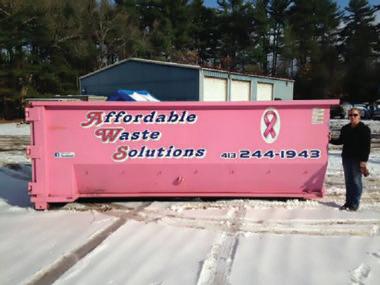
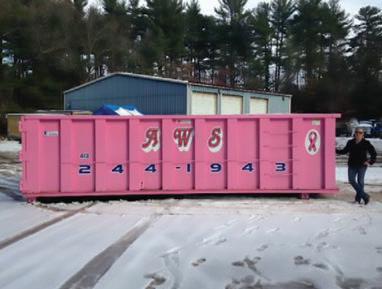
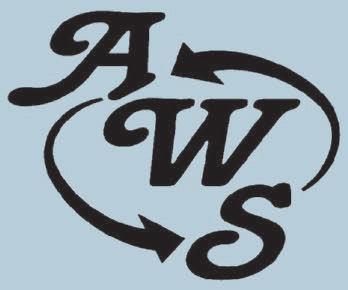
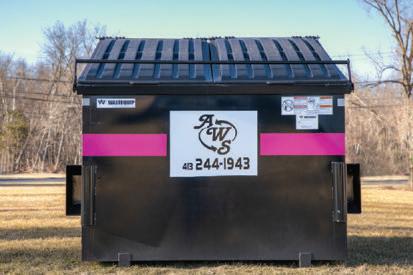
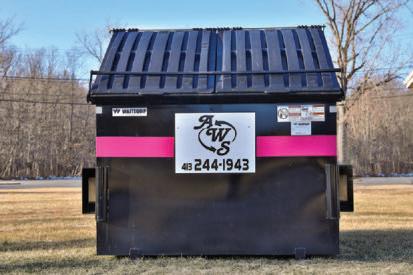
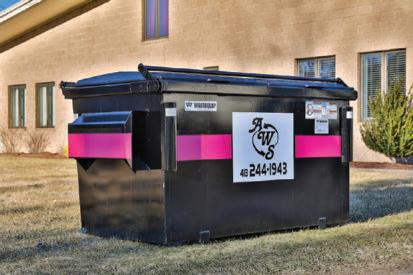
Foam (Do NOT place in household recycling bin)
The recycling market for rigid foam material (aka Styrofoam™ or expanded polystyrene/EPS) is growing, but only certain blocky foams are accepted through special recycling programs. These rigid-type foam products are divided into three general categories of 1) Shipping peanuts, 2) Blocky packing material, and 3) Food-related serve ware (cups, plates, trays):
• Foam shipping peanuts: Foam peanuts are not recyclable, but they are highly reusable. Some local retail shipping outlets accept clean & dry peanuts (call first; search for a store near you at theupsstore.com). Or offer them for local reuse via an online sharing group such as Freecycle.org or a “Buy Nothing” Facebook group.
• Large, rigid foam blocks, sheets, and coolers: Clean
and dry foam packing materials and coolers are only recyclable through a separate collection. Some communities collect this foam at municipal transfer stations or at special collection events and transport it to a foam recycling facility. Gold Circuit E-Cycling in Agawam (413- 328-3187, goldcircuit.io; recycleyourfoam.com) accepts various types of foam from the public for a fee.
• Foam cups, plates, and trays: Place these in the trash. Even if they have a recycling symbol, food-related Styrofoam™ materials are not currently accepted at any recycling facilities.
Flexible plastic pouches that contained fruit purees (i.e. applesauce), kids drinks, yogurt, baby food, and health/beauty products, are NOT recyclable in municipal recycling programs. Terracycle has several different mail-in recycling programs for pouches and
caps; go to: terracycle.com and type “pouches” in the search bar. Please remove all residual food and liquid.
(see “Building & Remodeling Materials”)
Most propane tanks can be refilled; many businesses that sell propane will accept tanks for reuse under specific conditions. Do not put tanks in household recycling, trash, or scrap metal dumpsters. Tanks are recyclable in special, separate programs at transfer stations or recycling centers. Do not puncture propane tanks. Close the valves on barbeque grill size tanks. Some recyclers also accept small camping-style tanks. Local municipal recycling info is found in the Community Recycling Information table in this guide; find more options at earth911.com.
Offer these items for reuse. They are not accepted in recycling; dispose of these in the trash (wrap up broken pieces). Colorful ceramic/ porcelain items (even broken ones) are sometimes used by local arts centers or craftspeople, so a phone call or a post to an online sharing group (e.g. Freecycle.org or a local “Buy Nothing” Facebook group) may help extend their usefulness.
Many metal items (like bicycles or BBQ grills) can be repaired, sold or donated to extend their useful life. Because of the usefulness and value of metal, state regulations prohibit throwing aluminum, steel, iron, lead, stainless steel, copper, brass, or bronze scrap in the trash. Some metal items require special handling due to toxic or pressurized materials and should not be put directly into scrap metal dumpsters: this includes lead acid batteries,
propane tanks, helium tanks, fluorescent light ballasts, air conditioners, refrigerators, and automotive parts. Many municipal transfer stations and recycling centers have scrap metal recycling dumpsters; see the Community Recycling Information table in this guide. Some scrap metal dealers will pay for metal items. Search online under “metal recycling” for the scrap yard nearest you and its requirements. Suitable scrap items should be mostly metal by weight; when possible, plastic parts should be removed.
As of November 2022, shoes, along with other textiles, are banned from the trash in MA. Bring CLEAN & DRY footwear and textiles & shoes to drop-off boxes serviced by organizations such as the Salvation Army (easternusa. salvationarmy.org), Bay State Textiles (baystatetextiles.com/ locations) & donation centers such as Goodwill Industries (goodwill.org).
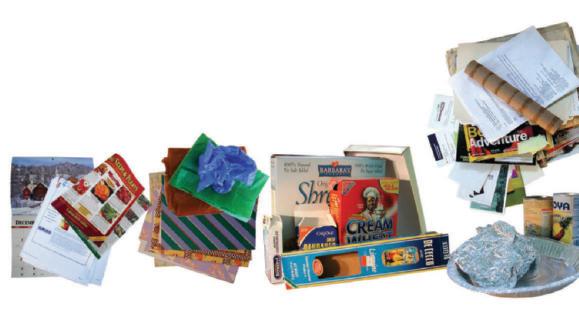
please recycle these papers & containers:
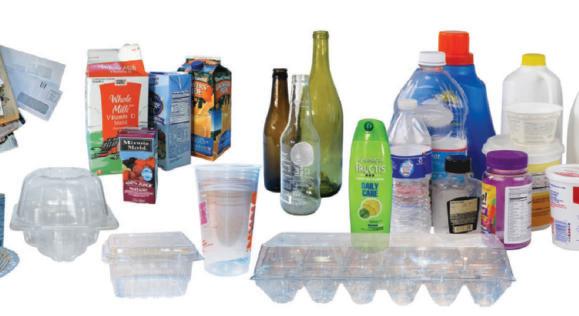
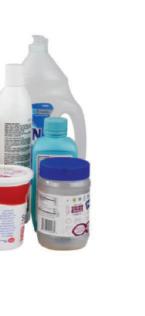
Paper: envelopes with windows, magazines, newspapers, inserts, junk mail, post-it notes, business cards, catalogs, white and colored paper, corrugated cardboard, paperboard (for example, cereal boxes), empty pizza boxes (no food or liners), paperback books, construction paper, gift wrap/bags/ tissue paper and greeting cards (no metallic inks, foil, wire, glitter, batteries)
Empty and clean all containers. Replace lids and caps.
Aluminum: cans, foil, pie pans
Steel: (tin) cans, beverage and pet food cans
Cartons: milk, juice, soup, soymilk and drink boxes
Glass: food, beverage bottles and jars
Plastics: (2.5 gallons or less) food containers–margarine, yogurt, cooking oil, condiments, peanut butter; beverage bottles and jugs–soda, water, juice, milk; clear plastic clamshells, clear plastic egg cartons, clear plastic cups; personal care bottles–shampoo, soap, conditioner; detergent bottles
No
Plastic bags, color or opaque plastic cups, automotive fluid bottles, black plastic, plastics over 2.5 gallons, paper frozen food packaging, Styrofoam™, textiles, batteries*
*For a complete YES & NO list of what can be recycled, visit www.springfieldmrf.org.
Many municipal transfer stations host textile drop boxes. DO include clean & dry shoes that are well worn or that are missing a mate. Shoes that are contaminated with mold, bodily fluids, insects, oil, or hazardous substances are exempt from the waste ban and may go in the trash.
In addition, several organizations, such as One World Running (oneworldrunning.com), specialize in shoe reuse. Rerun Shoes accepts used running shoes and can coordinate shoe drive fundraisers; visit rerunshoes.com or call (508) 944-2518. DSW Warehouse shoe stores host Soles4souls donation boxes: soles4souls. org. Got Sneakers (gotsneakers.com) offers a free sneaker recycling program for individuals and organizations.
Shredded paper is no longer accepted in household/municipal recycling programs. To have confidential documents shredded and recycled, bring them to area businesses (e.g. copy shops, office supply, and shipping stores). Local banks often sponsor free shredding events in the spring and fall. The material that is shredded in these programs is delivered directly to paper mills, which avoids the scattering and contamination that ensues at a household recycling facility. Otherwise, dispose of shredded paper as trash. Paper shreds that are free of plastic and receipts can go in municipal compost programs, where allowed.
Remove all non-alkaline batteries and dispose of them appropriately (see “Batteries”). Most household smoke detectors contain a small amount of a radioactive element, Americium-241. The quantity in each unit is considered harmless, but its presence is worrisome enough that retailer and manufacturer take-back programs exist. Google the manufacturer’s name with “smoke detector recycling” for program and shipping details. Curie Environmental Services offers a fee-based, mail-in smoke alarm recycling program, see curieservices.
com. Some communities allow smoke detectors to be thrown away in the bulky waste container at a recycling/transfer station, see the Community Recycling Information table in this guide.
Carbon monoxide detectors are not considered hazardous and can be safely disposed of in the trash after removing (and recycling) all non-alkaline batteries.
Sporting equipment exchange/donation options are found locally via charitable organizations such as schools, Scout troops, or the Lion’s Club. Consider sharing via online groups (e.g. Freecycle.org or a “Buy Nothing” Facebook group).
Rinse & recycle with containers. Acceptable items include cans from food & beverage (e.g. soup, beans, pet food, etc.), household, and personal products. Detached lids can be placed inside rinsed can. Labels need not be removed. Empty tin containers (e.g. popcorn, cookies, tea, mints, etc.) are also accepted in recycling.
STYROFOAM
(see “Plastics: Foam”)
TELEVISIONS
(see “Electronics”)
TENNIS BALLS
Check with your local animal shelter or elementary school to see if they accept tennis ball donations (schools use them to reduce the noise and impact of chairs/desks on floors). A mail-in recycling program is available at tennisballrecycling.com.
TEXTILES
(see “Clothing & Textiles”)
THERMOMETERS & THERMOSTATS
(see “Mercury & Mercury-containing Products”)
TOOTHPASTE TUBES, TOOTHBRUSHES
These items are not accepted in household recycling. Terracycle runs mail-in recycling programs for oral care items (terracycle.com). Preserve®
brand toothbrushes can be mailed for recycling (preserve. eco).
Contact your local trophy shop to see if they can reuse your old trophies. A Wisconsin-based trophy organization offers a fee based, mail-in reuse program; go to awardsmall.com and search for “recycling.” A Massachusetts company accepts metal sports or academic medals/ medallions for recycling; see sportsmedalrecycling.com.
Lamb Awards (lambawards. com) reuses or recycles trophies for parts. Before you send your trophies in, drop them an email at internet@ lambawards.com and put “recycling” in the subject line.
Tyvek™ envelopes (large, white envelopes that won’t rip, often from express shipments) are not accepted in municipal/ household recycling, or in the plastic bag recycling programs at grocery and retail stores. Tyvek™ envelopes can be stuffed into a box labeled “Tyvek Recycling” and mailed to: CFS Meridian Recycling, 337 A Industrial Drive, Petersburg, VA 23803. For more information: (804) 732 1907 ext. 7327.
Glass vases are not recyclable. Post unwanted vases on Freecycle: Front Door, a Facebook “Buy Nothing” group, or donate to a local garden club, swap shop, or local florist(s) for reuse (call first).
(see “Cooking Oil”)
Old vehicles, even inoperable ones, are valued for spare parts and metal. Consider donating them to a charitable organization (might be tax deductible). Contact your favorite charity or search online for “auto (or vehicle/truck/ motorcycle/boat) donation.” Alternatively, search the Internet under “Auto Wreckers & Salvage.”
(see “Building & Remodeling Materials”)
There are no special disposal requirements, but x-rays do contain a small amount of silver. Some hospital radiology departments will accept them for recycling. B.W. Recycling, Inc. accepts mailed x-rays for recycling: xrayfilmsrecycling. com.
(Leaves, grass, brush, Christmas trees)
Throwing away leaf & yard waste as trash is prohibited by state waste bans. Some communities collect yard waste seasonally for wood chip production or composting; for local contact information, see the Community Recycling Information table in this guide. Goat farmers often accept bare Christmas trees as food. Visit mass.gov/ composting-organics to learn about composting yard waste in your backyard.
Yoga mats are not recyclable but can be repurposed. Search online for “yoga mat reuse,” or offer via an online sharing group (e.g. Freecycle.org or a “Buy Nothing” Facebook group).
Looking for something that is not on this list? Here are local resources with more information:
Springfield MRF’s “What’s Recyclable” page: springfieldmrf.org/whats-recyclable-at-the-mrf
MassDEP’s Recycle Smart Recyclopedia: recyclesmartma.org
Please help us to improve this guide for the next edition! If you encounter errors or have suggestions for changes or additions, contact us at PioneerValleyRRR@gmail.com. Thank you!
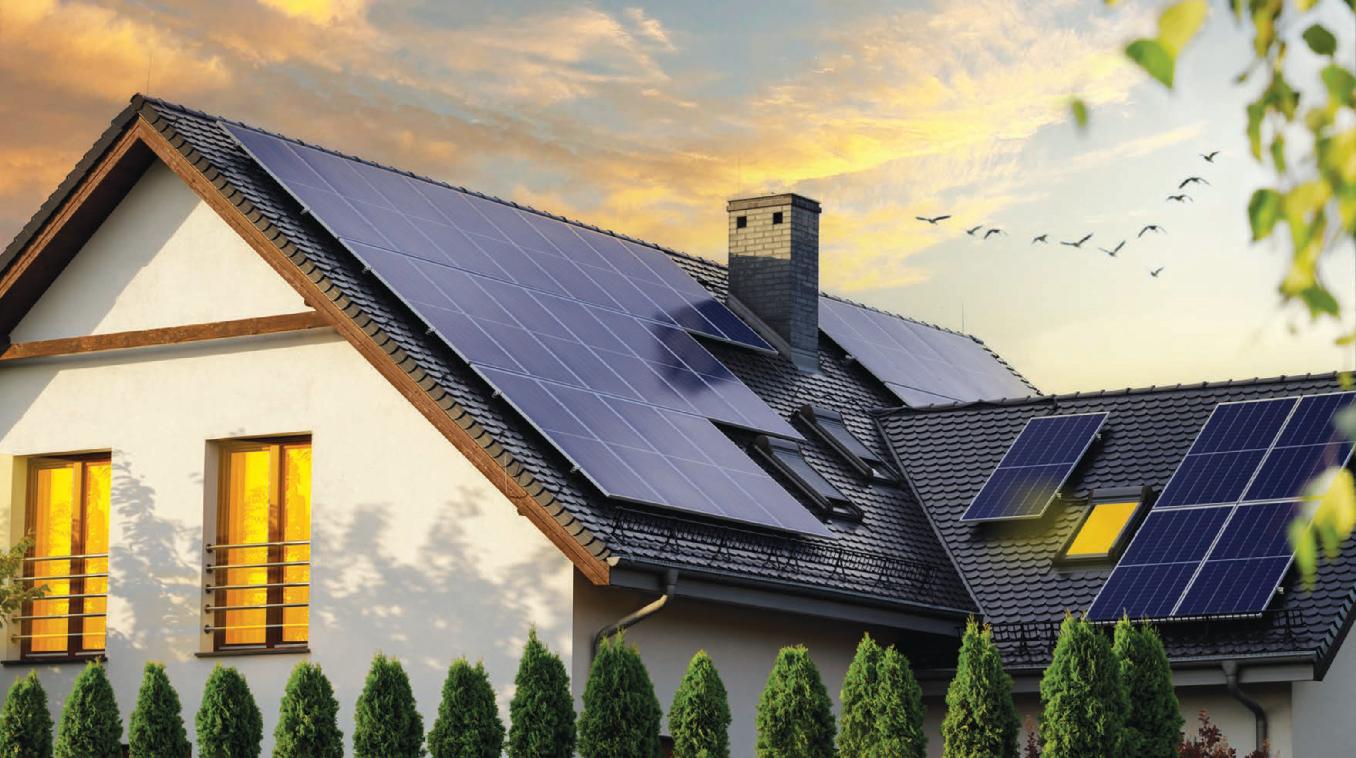

Solar energy panels have gained visibility in neighborhoods across the country.
Where it once was a rarity to see solar panels on the roofs of homes, today a stroll or drive around a given community is bound to reveal a number of homeowners have made the transition to solar power. You may be wondering if the investment is worth it. Solar panels harvest energy from the sun through the use of photovoltaic cells. These semiconductor materials absorb photons from the sun, and the photons release electrons from the atoms of the semiconductor material. According to Forbes, the flow of these electrons within the cell creates an electric current directed to circuits. Solar panels can be placed anywhere there is abundant sunlight, such as in open fields. In
residential areas, they’re most often placed on roofs to get the most sun exposure. Although having solar panels on the roof may affect the aesthetic of a home, many people find the benefits far outweigh such issues. Consider these perks to going solar.
· Save money:
One of the draws of solar power is the ability to save money on your monthly utility bill. Electricity costs seemingly rise year after year. The Solar Energy Industries Association® says the cost of solar has decreased by more than 70 percent in the past decade compared to the cost of electricity, which has risen about five percent. Over the course of a solar panel life span, which is typically between 25 and 30 years, it’s possible to save $25,500 to $33,000 on electricity.
· More affordable:
As noted, the cost of installing solar panels continues to drop. Investopedia says up-front cost of
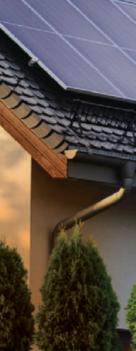
a residential solar power system is between $3,500 and $16,000, depending on the size of the system. Energy.gov says the United States has extended the federal residential solar tax credit, and you can save a 30 percent tax credit on the cost of solar systems through January 1, 2033. Options abound for financing to make solar more affordable.
Homes with solar panels sell 4 percent higher than those that don’t have them.
· Get paid back: Solar incentives in some areas may enable homeowners to turn profits in addition to generating electric bill savings. Solar renewable energy credits compensate you for the electricity that the solar panel system generates.
during a disruption in power, and eliminate the need to purchase a backup generator.
· Protect the planet: Burning of fossil fuels to generate power contributes to carbon emissions. Switching to solar can reduce carbon emissions and help prevent air and water contamination.
Solar incentives in some areas may enable homeowners to turn profits in addition to generating electric bill savings.
· Increased home value:
According to the National Renewable Energy Laboratory, homeowners can increase the value of their homes by $20 for every $1 in savings on electrical bills from solar energy.
· Avoid disruptions in power: Strong storms or even accidents that affect power lines can knock out traditional electricity for hours. Battery storage combined with solar energy can be beneficial
Solar energy panels are becoming more visible in residential neighborhoods thanks in large parts to the many benefits such panels provide.
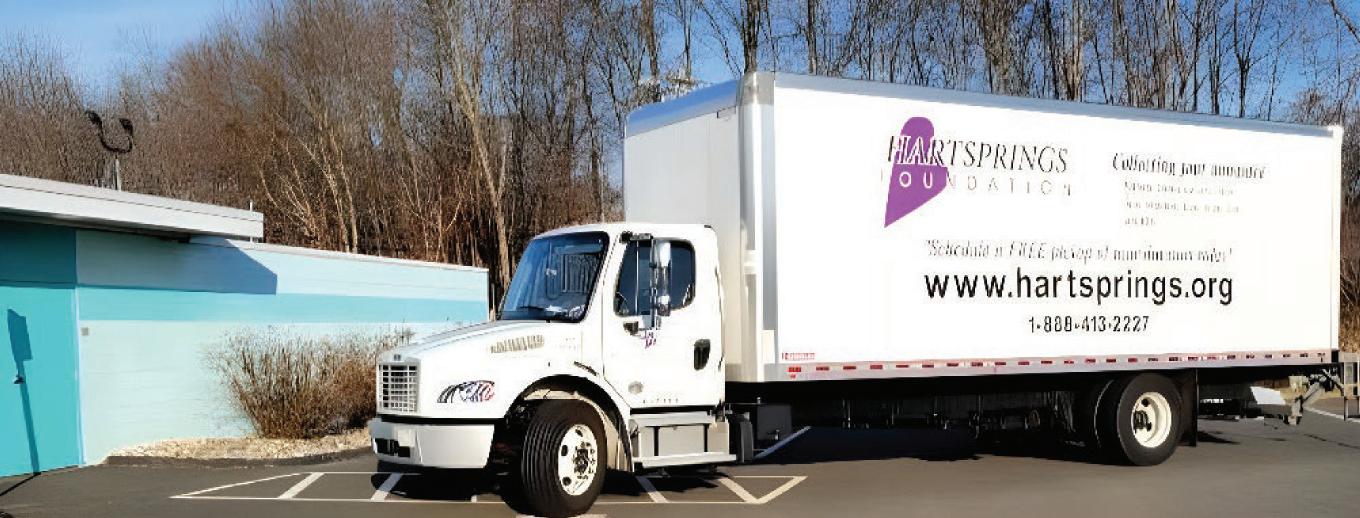
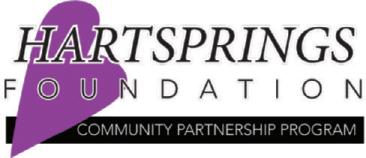

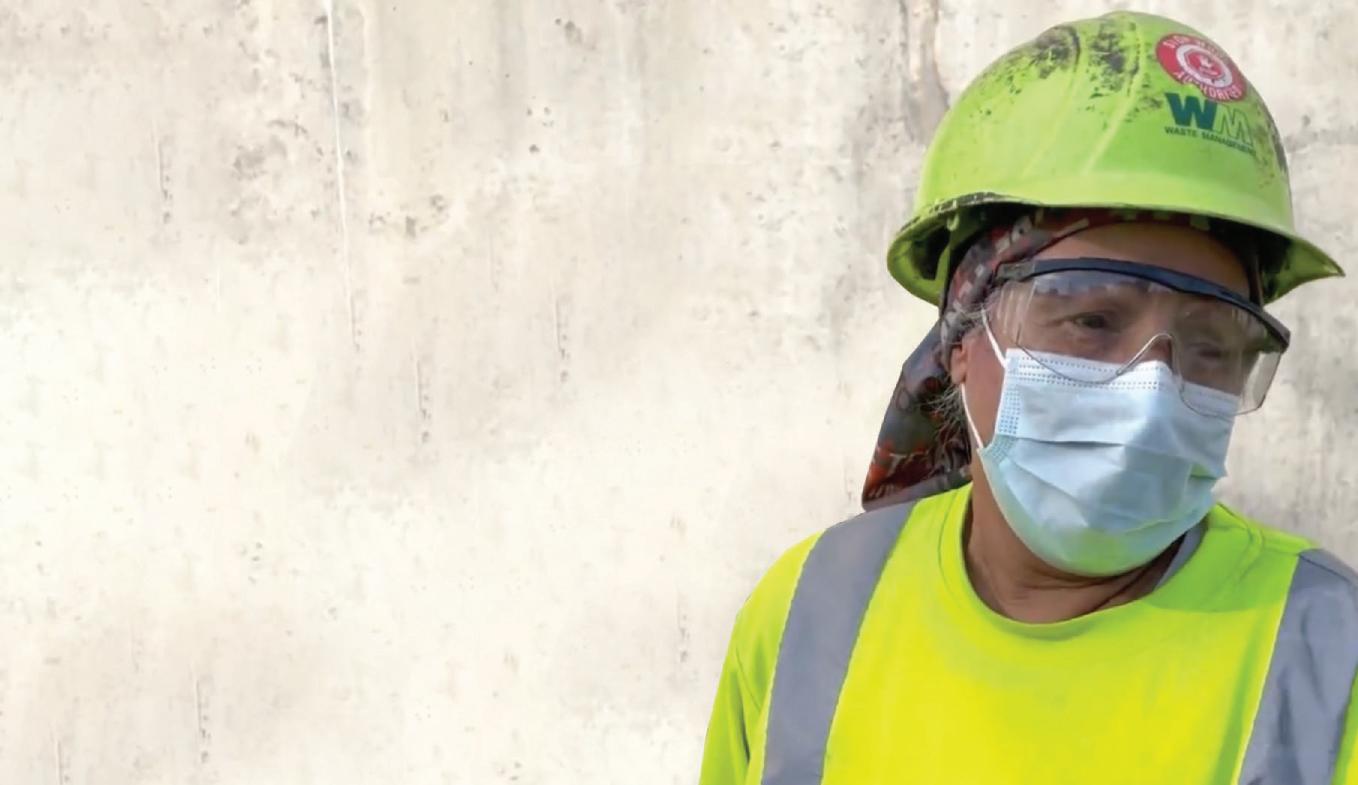
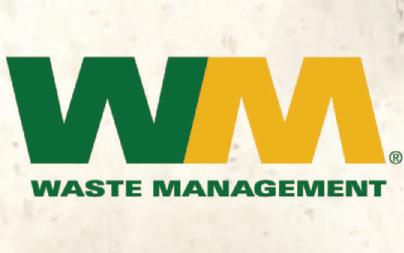
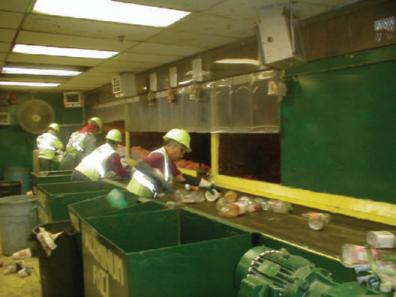

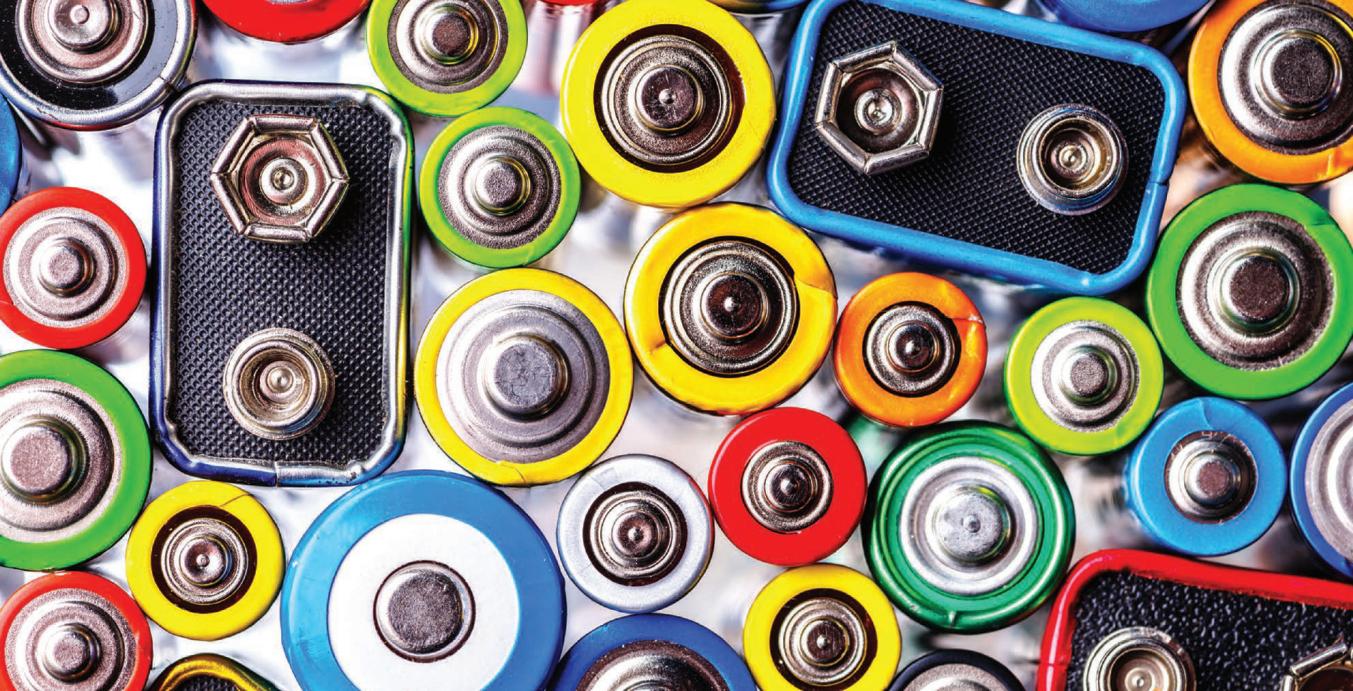
Alkaline
batteries, rechargeable batteries, buttoncell batteries, lithium ion batteries
… it’s not easy to know how to dispose of them all properly.
By C ORI U RBAN SPECIAL TO THE REPUBLICAN
But doing just that is important because the improper disposal of batteries can harm people and the environment and cause fires.
“The proliferation of electronic tools has resulted in not only small explosions but house fires. We are learning more and more about the danger and the difference between alkaline batteries and other batteries,” said Arlene C. Miller, chairman of the Springfield Materials Recycling Facility Advisory Board. “Fire departments all over Western Massachusetts are making the management of these batteries a priority — how to store them, how to charge them, ow to handle a
damaged battery.”
Lithium batteries have gained widespread popularity due to their compact size, light weight and high energy storage capacity. “So as we see their increased use we continue to see increased improper disposal,” said Jeff W. Weld, director of communications for Casella Waste Systems Inc.
He said the best option for consumers is to contact their local municipality to learn the best practices and local resources available for the disposal of lithium batteries.
A key cause of lithium battery-related fires is “thermal runaway,” a chain reaction within a damaged battery cell causing large amounts of heat to be produced, often in an uncontrollable, self-heating state, he explained. The battery temperature rises quickly, often reaching more than 700 degrees Fahrenheit in milliseconds, causing a chemical reaction and resulting in the energy stored in that battery being released suddenly.
According to Jonathan Murray, director of operations for USA Waste and Recycling/ All American MRF, batteries that end up in trash and
recycling carts create a risk to communities and to the business’ employees, trucks and facilities. “When people improperly dispose of a lithium-ion battery in curbside bins, lithium-ion batteries can be easily damaged and spark fires. A lithium-ion battery’s chemistry makes it prone to spontaneous sparking, smoldering and burning when damaged,” he said.
At the business’ transfer stations and recycling facilities, employees work hard to identify and remove the batteries from the piles of material to ensure they do not start a fire, but often, due to their small size and concealment within other products, they cannot be identified for removal.
“The catastrophic conse
quences of improper disposal practices have resulted in
fires and tragic loss of life across the country due to these batteries being placed in household trash or recycling,” Weld continued. Fires can occur when the batteries are collected by waste and recycling trucks and compacted, causing the batteries to combust in the truck, or they make it to their destination and combust either in the material recovery facility, transfer station or landfill.
“Regardless, these fires burn incredibly hot, and incredibly fast, and they do not extinguish until the fuel is burned off. These fires are entirely preventable through proper disposal.”
Improperly disposed of batteries have significant costs due to fire damage, safety risks and operational issues. Once identified and removed from material piles, they must be contained within large drums and surrounded by fire
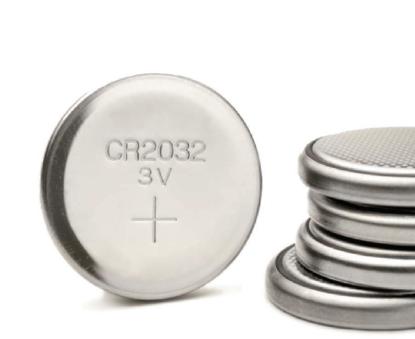
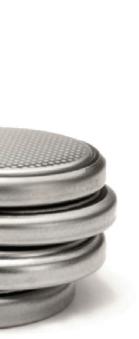
“Transporting damaged batteries is even more costly and dangerous. We transport out large quantities of cell phones, laptops, power tool batteries and rechargeable handheld devices every month,” Murray explained.
USA Waste and Recycling/ All American MRF has invested heavily in fire prevention systems throughout its facilities, including sprinklers, thermal monitoring and remote fire suppression. These systems help to ensure consistently high-quality service and protect people.
Ultimately, additional operating costs are passed to the consumer. “We do our best to minimize the operational costs associated with improperly disposed batteries while maintaining the same quality level of service and ensuring we have a safe work environment,” he said.
“The best prevention is to ensure that these batteries do not make their way to the garbage or recycling bin in the first place,” Murray said.
For more information, go to searchearth911.com, call2recycle.org or Call2Recycle.com.
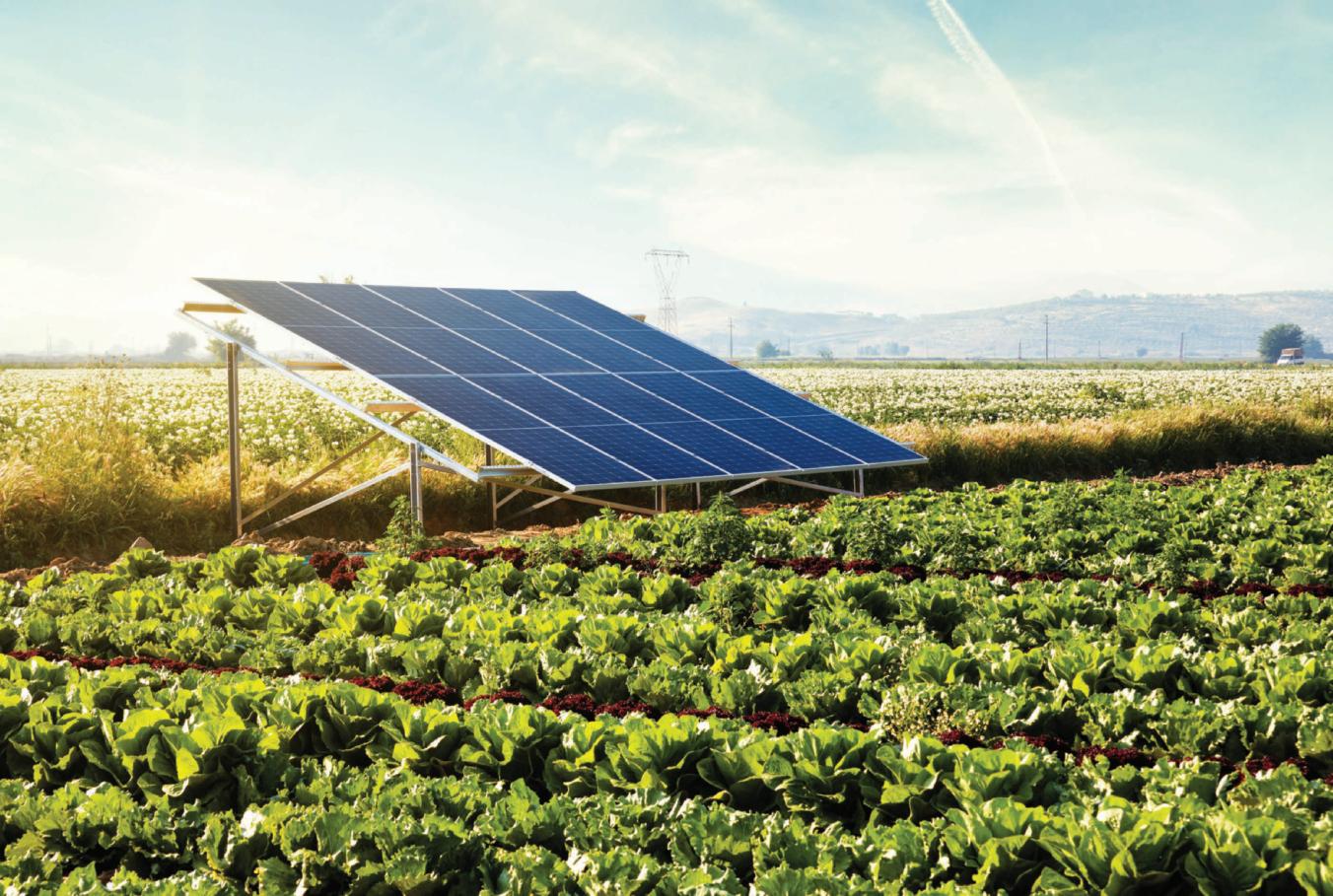
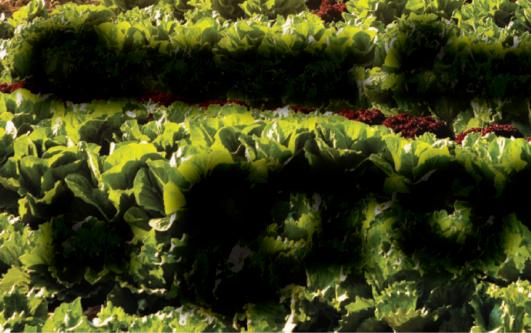
Farmers have been pressured to increase production to meet the demand of a growing population.
This may require employing more efficient measures to ensure maximum output. Unfortunately, efficiency doesn’t always mesh with sustainability, so commercial operations have had to make some modifications to find a balance between serving the public and protecting the planet.
Green farming utilizes different technology and practices in order to decrease detrimental impact on the environment. According to the farming resource NuFarming, agricultural operations have a
significant impact on climate change. Simply adopting some new practices can lessen that impact.
Growing plants are not the only thing on a farm that can benefit from the sun. Farmers can convert a portion or all of their power needs to solar. According to the U.S. Department of Energy, there are benefits when solar companies and farmers work together. Solar developers reduce installation costs and upfront risk by placing solar modules on previously tilled agricultural land. Vegetation under modules also can contribute to lower soil temperatures and increased solar performance. Agricultural land managers can reduce energy costs and diversify their revenue streams with solar. Plus, they can market products to sustainability-minded
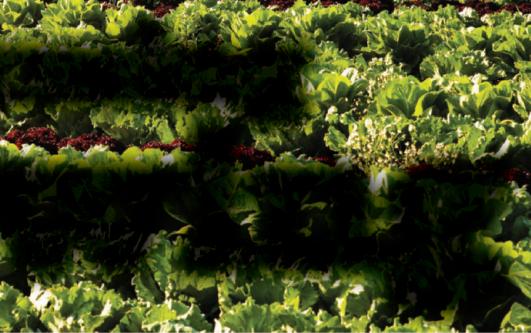
customers.
Solar is not the only renewable energy option. Farmers can incorporate wind and hydroelectric power as well.
This farming technique has been used for thousands of years and involves growing different crops in different seasons over a period of time. Farmers reduce the chances for pests and diseases becoming problems in the soil because frequent crop changes prevent invaders from gaining a foothold. Farmers use fewer fertilizers and pesticides as a result.
Farmers can improve productivity while also reducing environmental impact with these two growing methods. NuEnergy states that
hydroponic systems grow plants in mineral solutions or in materials like perlite or gravel. Aquaponics involves raising aquatic animals in addition to growing crops. The waste from the fish and other marine life is used to offer nutrients to the plants by growing them in this nutrient-rich water. Both methods remove the need for soil.
Drip irrigation methods deliver water to the roots of plants through a series of pipes or tubes. Because water is not being sprayed into the air through sprinklers and other methods, less is lost to evaporation, and less water overall may be needed to provide for crops.
Farmers can introduce plants that pests tend not to like to reduce reliance on chemical pesticides. For example, interspersing crops with natural bug repellants, such as basil, lavender and lemongrass, may keep insects at bay. Alliums, chrysanthemums, marigolds, and other flowers planted nearby also may deter bugs.
Green farming is something more agricultural operations may want to adopt.
Plastic seems like it may not have a purpose on the farm, but recycled plastic, which is used in plastic mulch, can help produce plentiful crops with less water. Plastic mulches raise soil temperatures and insulate against evaporation so plants can grow faster and mature sooner. Invasive weeds also may be less likely to take root in plastic mulch or when crops are grown on black plastic.
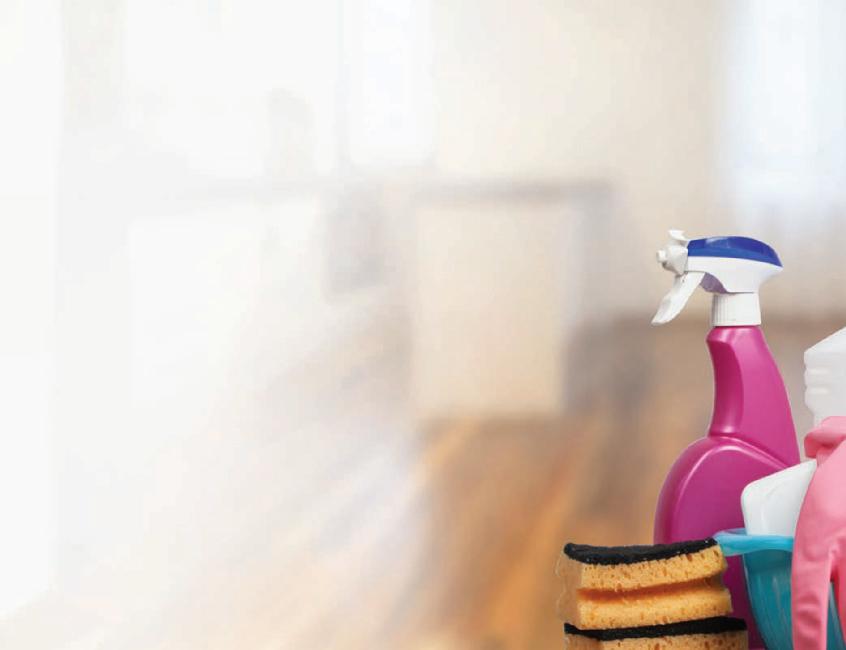
Protect your home and Western Massachusetts by properly disposing of old household chemicals and mercury containing items.

Residential HHW collection programs will accept a wide range of unwanted household products with Labels that indicate that special handling is required. Never put these products in trash or recycling bins. Contact your town or city DPW or Health Department for disposal options. Empty hazardous waste containers should be put in the trash, not recycling.
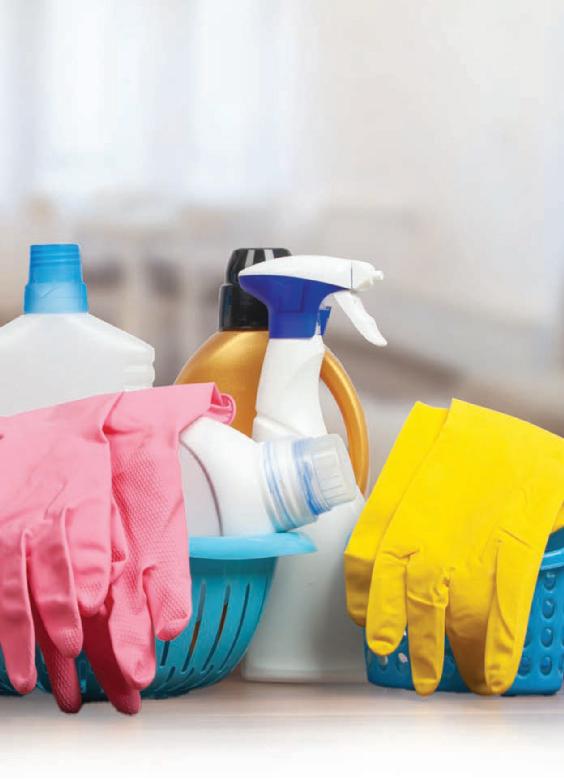
Look for products labeled: CAUSTIC, TOXIC, CORROSIVE, POISON, FLAMMABLE, WARNING, DANGER, CAUTION
FROM
Pesticides
Insect sprays
Fungicides
Flea powder
Herbicides
Root killers
Rodent killers
Muriatic acid
No-Pest strips
Pool chemicals
Lighter fluid
Used motor oil
Engine degreaser
Gas treatments
Gasoline
Kerosene
Solvents
Automobile batteries
Brake fluid
Carburetor cleaner
Creosote sealer
Asphalt sealer
Refrigerants
Antifreeze
Transmission fluid
Radiator flush
Aerosol cans
Roofing tar
Solvents
Varnish
Sealants
Wood strippers
Rust inhibitors
Paint thinners
Degreasers
Wood preservatives
Wood strippers
Stains
Lead & oil–based paints
(No latex paint)
Photo chemicals
Oven cleaners
Furniture polish
Upholstery cleaner
Metal polish
Mothballs
Spot remover
Drain cleaners
Toilet cleaners
Fluorescent light bulbs
Mercury thermometers
Mercury thermostats
Chemistry kits
Arts & crafts supplies
Button batteries
Rechargeable batteries
Medications, Fluorescent bulbs, Latex paint, empty containers from hazardous products, asbestos, gas cylinders, radioactive material, explosives (including ammunition & fireworks)
* LATEX PAINT is not hazardous. Completely dry, uncovered cans of latex paint may be placed with regular trash. Below is a listing of scheduled residential HHW collection programs in Hampden County for 2024. Pre-registration is always required. Residents of the towns and cities listed below may participate in their own community’s event, usually at no cost. In some cases, arrangements can be made for non-resident and small businesses to participate for a fee. If your community is not listed, call your community representative.
2024 Dates Municipality Contact Phone
April 16, April 27, May 18 Fall Dates TBA Springfield Cristina Ferrera 413-736-3111
September 7th Agawam Tracy DeMaio 413-821-0624
Mondays & Wednesdays 9am-4pm Saturdays 9am-1pm
East Longmeadow, Longmeadow
* Check town website for details
NEDT Westfield (Fees may apply)
East Longmeadow residents contact Liz Bone 866-769-1621 413-525-5400 x1108
May 4th, October 5th Chicopee Barry Brouillard 413-594-3557 October 12th West Springfield Town Offices 413-263-3234
Mondays & Wednesdays 9am-4pm Saturdays 9am-1pm
New England Disposal Technologies (open to all, small fees may apply) NEDT Westfield 866-769-1621
Please note: this schedule is subject to change due to municipal budget constraints and uncertainties.

One provider for all your recycling and waste needs.
Keeping your space clean is a priority. We can help with simple, reliable services that benefit you and our planet.
National support with local service from: Republic Services® 845 Burnett Rd Chicopee, MA
Get started by calling 413.557.6700 or visiting RepublicServices.com

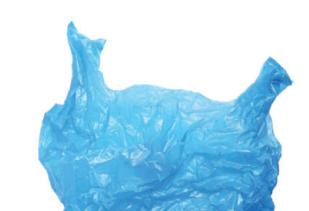





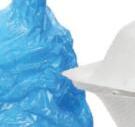
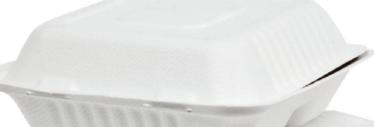

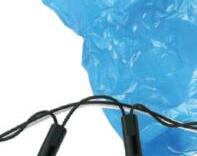
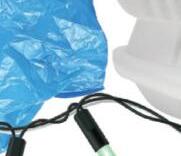
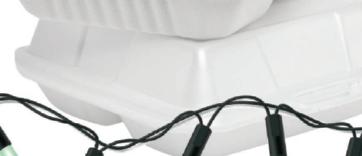



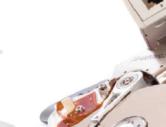
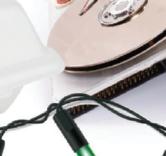
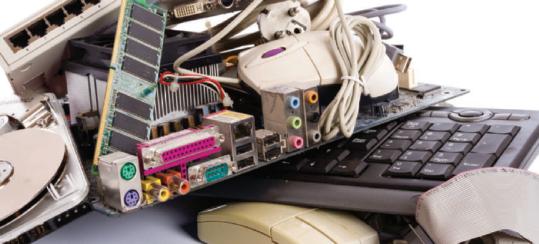

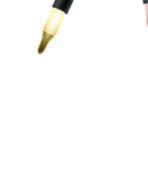





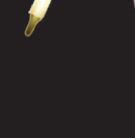





















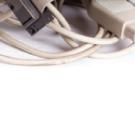
























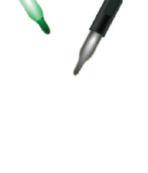
Below is an explanation of WHY they are not acceptable. Please bear in mind that all materials collected for recycling are sorted and then baled and sent to a vendor to be turned into new materials. It is very important for these vendors that the materials be clean and correctly sorted. If there is NO MARKET for a material, EVEN IF IT APPEARS to be recyclable, then that material cannot be collected. Materials are sorted both by machinery and also by hand. Adding materials which cannot be recycled means those materials will have to be sorted out from the proper recyclables and then THROWN AWAY. This adds both time and expense to the recycling process, so PLEASE DO NOT include any of the following items:
These cannot be recycled through your recycling program because they wrap around the conveyor belt at the recycling facility, which causes the line to be shut down in order to strip away all the bags. Bags CAN be recycled through your local grocery stores.
These cannot be recycled both because they include plastic bags (see above) but also because they would need to be opened by hand to sort materials. There is neither the time nor the personnel to accommodate this. Bagged materials will be THROWN AWAY.
Includes items such as hoses,
light strings, anything which could wrap around a conveyor belt (think of materials which clog up a lawnmower, for instance). These materials are both non-recyclable and cause the line to be shut down at the recycling facility.
These are a bio hazard and pose a danger to workers.
Needles of any kind should be disposed of properly through a municipal or other safe SHARPS disposal program. Contact your local municipality for options.
Food Waste should never be left inside of recyclables, nor placed in a recycling collection bin. Think of the icky mess and the sorters having to handle the waste! Food waste CAN BE COMPOSTED.
FOR MORE INFORMATION ON RECYCLING THESE
Check with your municipality for options including compost bin purchase programs.
Hazardous chemicals leach into plastics, rendering the plastic unfit for other uses. Please deposit empty containers which have held hazardous chemicals into the trash.
Expanded polystyrene (EPS, trademarked ‘Styrofoam’) is not accepted at local recycling facilities, as its light weight makes it too costly to ship. However, EPS can be shredded and compressed into blocks to be transformed into pellets for recycling into picture frames and car bumpers. Please check the Springfield MRF website for Styrofoam recycling options.
For a complete YES & NO list of what can be recycled, visit www.springfieldmrf.org or call
ext. 52293 or 413-784-1100, ext. 52293.
Such as Solo cups are categorized as a # 6 plastic. This is the same category as Styrofoam, polystyrene, and expanded polystyrene. There is no market for these items, please deposit in trash. Clear plastic cups are acceptable.
Incandescent light bulbs have a different type of glass from regular bottles and jars, which makes them unrecyclable, plus they invariably break making them a hazard for workers. These should be deposited in the trash. Fluorescent light bulbs contain mercury and should be properly recycled. Several large home improvement stores accept fluorescent bulbs free of charge. Please also check with your municipality to see
if they collect fluorescent light bulbs.
Pots, pans and scrap metal
These items get caught in the conveyor belts at the recycling facility. Please check your municipality for scrap metal and swap shop options.
Ceramics and other materials which make up dishware is not recyclable. Please check with your municipality for swap shop options; otherwise please place in the trash.
Electronics contain some hazardous chemicals and sometimes leaded glass. Electronics should be properly recycled; please check with your municipality for electronics recycling options.
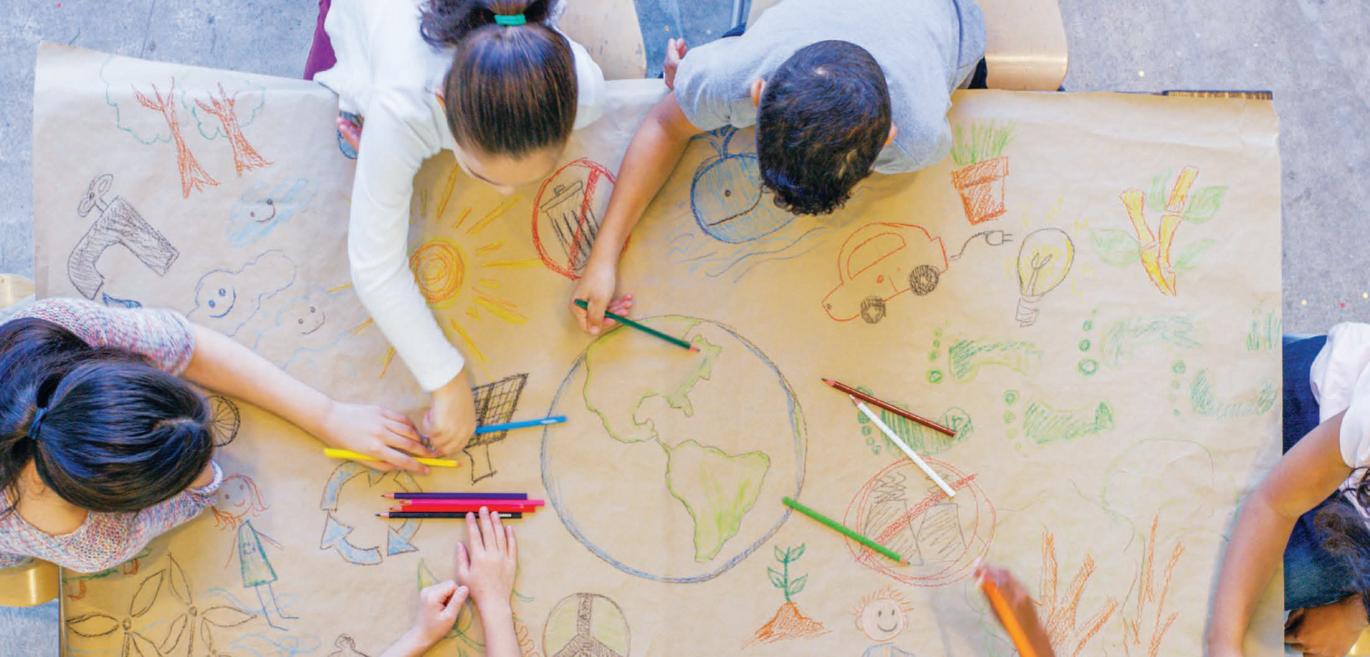
By C ORI U RBAN SPECIAL TO THE REPUBLICAN
Whether you say reciclar, перерабатывать, geri dönüşüm or переробляти, the word “recycle” has become more prominent in households and classrooms in the years since the popular “reduce, reuse, recycle” slogan.
The steps to a waste-free lifestyle have expanded:
• Rethink: Think about what you are buying and if you truly need it.
• Refuse: Don’t buy items that are not environmentally friendly.
• Reuse: Pass on clothing and housewares in good condition to those who can use them.
• Regift: Give away items you no longer want.
• Repair: Before you replace something, try repairing it.
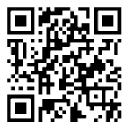
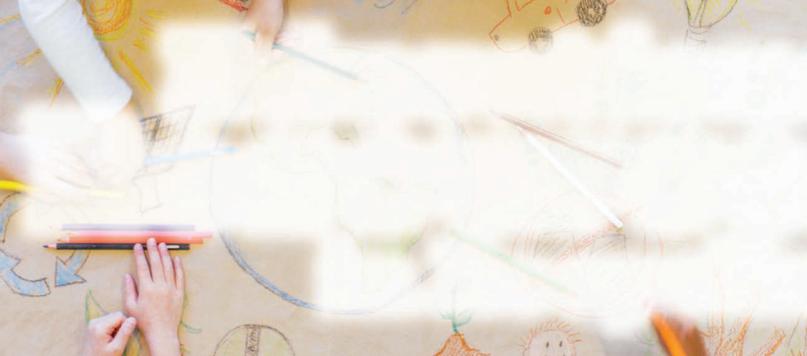
• Repurpose: Find alternative uses for unwanted items.
• Recycle: Recycle paper, bottles and cans in your local recycling program. Turn kitchen scraps into compost.
These are steps being encouraged by the Springfield Materials Recycling Facility Advisory Board, which is also promoting videos in English, Spanish, Russian, Turkish and Ukranian to help residents understand how and what to recycle.
There are numerous ways to get recycling education information, not just in print but also in the focused videos and in multiple languages. “It is our intent to try to make it (fun), easy and convenient for folks to get the message about how to and why to recycle. And all of this is free,” said Arlene C. Miller, chairman of the MRF Advisory Board.
The videos and any referenced flyers in videos were
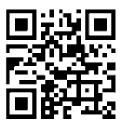
translated into Spanish, Russian, Turkish and Ukrainian. Springfield, Chicopee, Westfield, Agawam and West Springfield school systems were surveyed about the top three most-spoken languages in the school system.
“Although in some school systems there were more than 20 different languages spoken, the top four most commonly reported languages between the five communities were chosen,” explained Tracy M. DeMaio, Environmental Project Coordinator for the Agawam Department of Public Works. “The videos to me are a very valuable tool I don’t believe many are aware are available. They are not only useful to schools, but the general public.”
The five short videos present the how, where and why of recycling.
The original videos were funded by the Springfield MRF Advisory Board, and the translated videos were funded by the Town of Agawam and Town of West Springfield
through the use of Mass DEP Recycling Dividend Grant Funding.
The project was a collaboration between the University of Massachusetts Translation Center, Reelife Productions and Agawam High School teachers.
DeMaio coordinated the three organizations to be sure the translations were correct and deadlines were met.
To access the videos, go to springfieldmrf.org/ videos
Other educational resources include tours of the Springfield Materials Recycling Facility for school and other groups. The 1-hour tour takes attendees behind the scenes to observe trucks unloading, sorting and baling operations. For more information, go to springfieldmrf.org/mrf-toursavailable.
There are printable posters and signs with colorful photos identifying which items
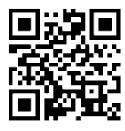

are — and are not — acceptable in Western Massachusetts household recycling programs. Go to springfieldmrf.org/whatsrecyclable-at-the-mrf.
The Green Team is an interactive, educational program funded by the MassDEP that offers standard-aligned lesson plans and resources for classrooms and clubs throughout the commonwealth. More information is available at thegreenteam. org.
Recycle Smart MA provides definitive, easy-to-understand information about what can and cannot be recycled at this MassDEP funded website. The site offers a Recyclopedia, online quizzes, downloadable graphics and details about where a community’s household recyclables are processed. Find out more at recyclesmartma.org
Additional resources are available at springfieldmrf.org/ links
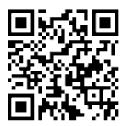
Gaylord Nelson
A former U.S. senator, he is considered the founder of Earth Day.
Abhay Kumar
Poet, diplomat and writer, he wrote “Earth Anthem,” widely considered to be the official Earth Day song.
Rachel Carson
Writer of 1962’s Silent Spring, a book describing the impact of pesticides on the environment, she is considered by many
to be the founder of the modern environmental movement.
Wangari Maathai
Environmental activist and founder of the Green Belt Movement in Africa, she helped to plant over 30 million trees.
Chico Mendes
A conservationist, he ignited international support for rainforest preservation in Brazil before being killed.
279 billion tons of ice per year was lost by Greenland between 1993 and 2019, while Antarctica lost about 148 billion tons annually.
Source: NASA
1 reusable bag = 600 plastic bags
One reusable bag can prevent the use of 600 plastic bags in its lifetime.
Source: National Geographic
1 mile of walking = 1 pound of pollution prevention
Every mile walked instead of driven keeps nearly one pound of pollution out of the air.
Source: National Geographic

1970
First Earth Day celebration takes place in the U.S.
1990
Earth Day Canada is established, and a worldwide campaign mobilizes 200 million people in 141 countries to observe Earth Day.
The United Nations recognizes Earth Day as International Mother Earth Day.
2020 Earth Day celebrates its 50th anniversary.
450 years is the potential breakdown period for a plastic bottle.
Source: National Geographic
15 billion trees are cut down worldwide each year.
Source: National Geographic
30% increase
in the acidity of surface ocean waters has been recorded since the beginning of the Industrial Revolution.
Source: NASA
91% of the world’s population live in places where air pollution exceeds World Health Organization guideline limits.
Source: World Health Organization
>1 billion people recognize Earth Day each year.
Source: Earth Day Network
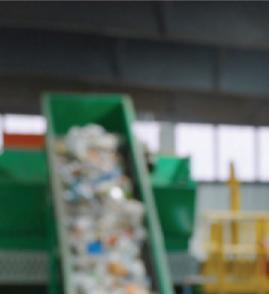
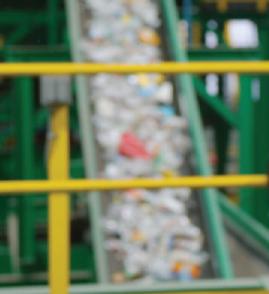
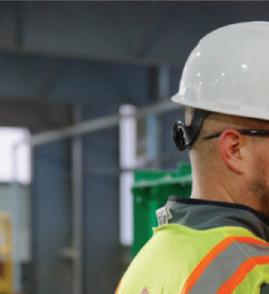
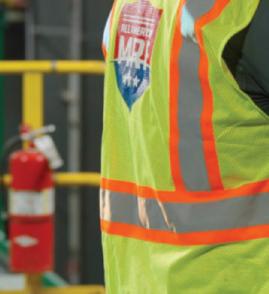
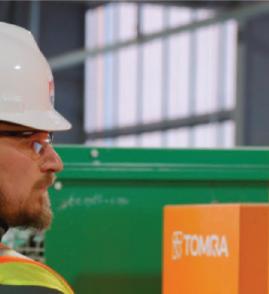
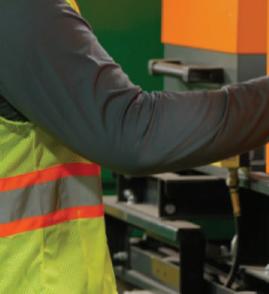

For 50 years, we’ve been working to make sure your recyclable materials are just that – recycled.

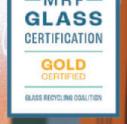
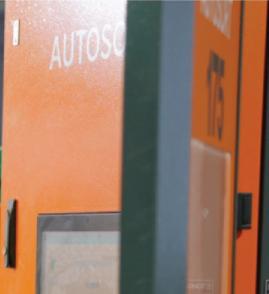
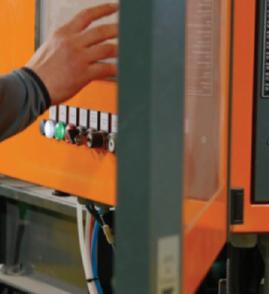
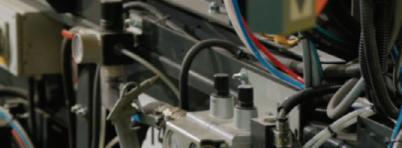
At USA, our commitment to innovation has driven us to develop one of the largest and most advanced material recovery facilities in the country. Powered by artificial intelligence and state-of-the-art scanning technology, this award-winning system has been designed to recycle more quickly, cleanly and efficiently than ever before.
This means our customers can now recycle items such as “black plastics,” cold cups and lids, yogurt containers, and all #5 packaging, which are considered non-recyclable, or trash, at most recycling facilities in the country. usarecycle.com
This table provides information about municipally funded solid waste collection programs. If an item is not checked for a particular town, call the contact number listed for more information; there may be an alternate disposal option or annual collection for this material. For more information regarding your communitites program, call the contact number for your commuity or visit www.springfieldmrf.org
Community
Agawam
agawam.ma.us/288/Trash-Recycling
Amherst Amherstma.gov/recycling
Belchertown belchertown.org/dpw/index.php
Blandford townofblandford.com
DPW 821-0624
DPW 259-3049
Transfer Station 323-0416
DPW 323-0415
Transfer Station 848-4279 x401
Chester townofchester.net/transfer-station/ BOH (413) 354-7781
Curbside
Drop-Off 1000 Suffield Street Mon - Fri 8:30am - 3:30pm
Drop-Off 740 Belchertown Road Tues, Thurs, Sat 8am - 2pm
Drop-Off Huntington Rd. Transfer Station Tues 6pm - 8pm & Sat 7am - Noon
Drop-Off Emery St. Transfer Station Wed 3pm - 6pm & Sat 9am - 1pm
Curbside
Deerfield franklincountywastedistrict.org/p/52/Deerfield
Easthampton
East Longmeadow eastlongmeadowma.gov/750/Waste-Reduction
DPW 594-3557 Drop-Off
FCSWMD 772-2438
DPW 529-1410
BOH 525-5400 ext. 1106
DPW 525-5400 ext. 1200
granby-ma.gov/trash-recycling-department Granby Town Hall 467-7177
Granville townofgranville.net/transfer-station Town Hall 357-8585
Greenfield
Chicopee chicopeema.gov/843 greenfield-ma.gov
DPW 772-1528 ext.6106
Hadley hadleyma.org/town-clerk/pages/transfer-station SWS 498-0099
Drop-Off 115
Drop-Off 42 Lee Road Tues, Thurs, Sat 8:30am - 4pm
Drop-Off 30 Northampton Street 1st & 3rd Sat 8am - Noon,
Drop-Off End of Oliver St. April - Nov 1st & 3rd Sat 8am - Noon, Oct & May every Sat 8am - Noon
Curbside
Drop-Off Knowlton Tran. Sta.
Curbside
Drop-Off 11 Crescent Street Mon-Fri 7am - 3pm
Drop-Off 89 Water Street Tues 1pm - 5pm, Sat 9am - 5pm
Curbside
Drop-Off 86 Cumberland Road Call DPW or visit town website for hours
Drop-Off 20 North Branch Road Wed 1pm - 6pm, Sat 7am - 4pm Hampden hampdenma.gov Town Hall 566-2151 x102
Holyoke holyoke.org/departments/public-works/
Longmeadow longmeadowma.gov/450/Trash-Recycling
ludlow.ma.us/232/Trash-Recycling Ludlow
Drop-Off Cross Rd. Transfer Station Tues Noon - 4pm, Sat 8am - 4pm
Curbside
Drop-Off DPW Yard, 63 Canal St. Tues - Thurs 7:30am - 2:30pm; Sat after a holiday 7am - Noon Yard Waste Drop-Off 1 Berkshire Ave April - Dec Sat & Sun 8am - 4pm
Curbside
DPW 567-3400
DPW 583-5625
Monson https://www.monson-ma.gov/312/Board-of-Health BOH 267-4107
Montague franklincountywastedistrict.org/p/58/Montague FCSWMD 772-2438
Northampton
DPW 322-5645 northamptonma.gov/751/Solid-Waste
Drop-Off Recycling Ctre. Pondside Rd. Wed 10am - 5pm, Sat 8am - 5pm, Sun 10am - 5pm (Seasonal Saturdays only)
Curbside
Drop-Off DPW, 198 Sportsmens Rd. Wed - Sat 8am - 3pm
Curbside
Curbside
Drop-Off Sandy Lane off Turnpike Rd. Sat 7am - 1pm, Wed 7am - 2:30pm Montgomery montgomeryma.gov Town Hall 862-3386
Curbside Every other Tuesday
Palmer townofpalmer.com/dpw DPW 413-283-2615
Russell townofrussell.us/transfer-station Town Hall 862-6200
South Hadley southhadley.org
DPW 538-5033
Highway Dept. 527-3666
Transfer Station 529-2352 - only
during days/hours of TS operation
DPW 569-6772
Southwick southwickma.org/solid-waste-division
Springfield springfield-ma.gov/dpw/
Tolland tolland-ma.gov/transfer-station-recycling
West Springfield
Transfer Station 569-0160
Cust. Service 736-3111
DPW 787-7840
DPW 258-4531
DPW 263-3242
125 Locust Street 170 Glendale Road
Drop-Off DPW, 15 Bridge St First Saturday of every month, 8am - Noon
Drop-Off Frog Hollow Rd. Wed 10am - 4pm & 6pm - 8pm, Sat 8am - 4pm
Curbside
Drop-Off 10 Industrial Drive Tues - Sat 8am - 3pm Closed between 12-1 for lunch
Southampton townofsouthampton.org/town-services/transferstation Drop-Off
Drop-Off
Curbside
DPW 587-1570 Drop-Off townofwestspringfield.org
Westfield cityofwestfield.org
Moose Brook Road Sat & Wed 7am - 5pm SHARP
22 Industrial Road Tues 11:30am - 7:20pm, Wed & Fri 8am - 4:20pm, Sat 8am - 3:50pm
Transfer Station 498-0099 Drop-Off K & W Transfer Station Mon
572-6226 Curbside
568-1159














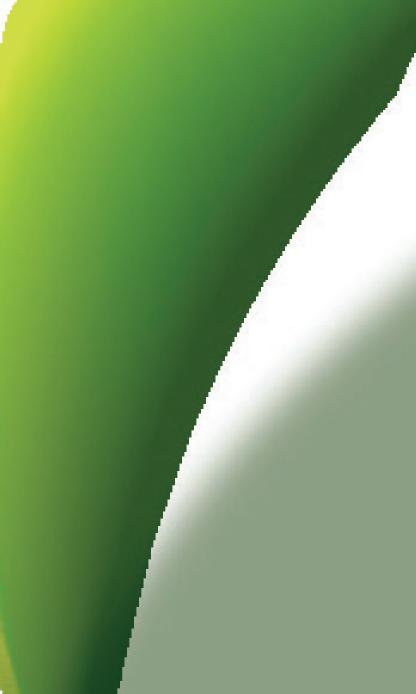
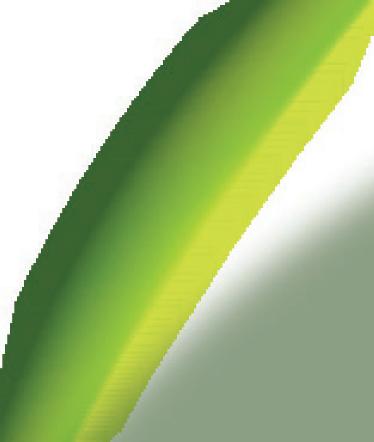


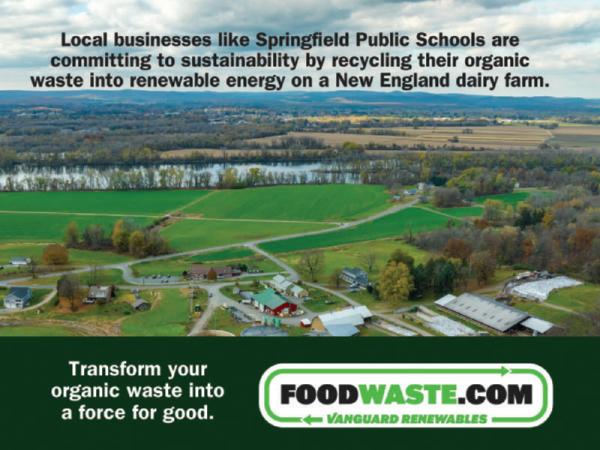


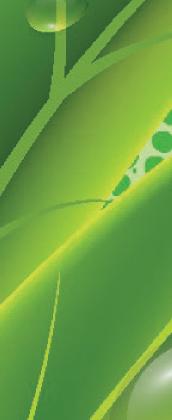
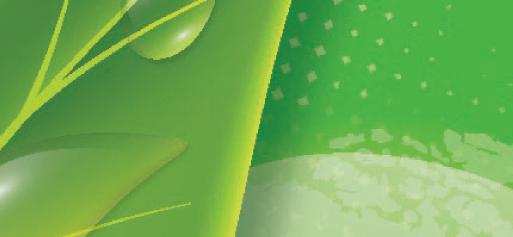












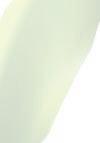










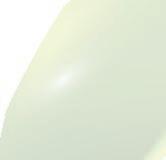

An emerging public consciousness about the planet began amid environmental issues like increased air pollution and massive consumption of fossil fuels in the 1960s. The bestselling book “Silent Spring” by Rachel Carson also raised public concern for living organisms and the links between pollution and public health. The push for environmental reform gained even more momentum on April 22, 1970, when the first Earth Day was celebrated. Then-Senator Gaylord Nelson from Wisconsin put Earth Day on the national stage following a large oil spill that struck off the coast of Santa Barbara, Calif. Before this disaster, recycling was not a word in the popular lexicon. But when the disaster struck, people began to reason that changes would have to be made to save the planet.

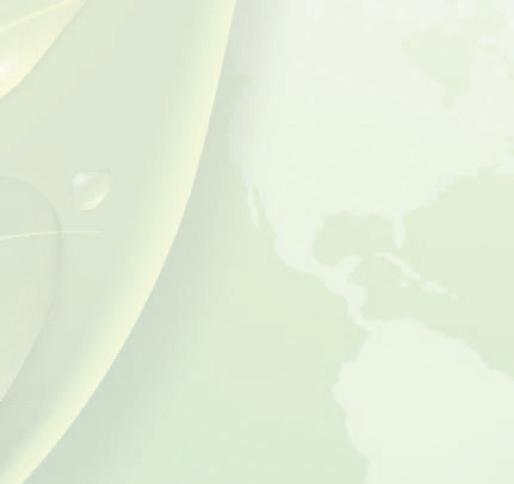
environmental safeguards grew in the second half of the twentieth century, and those demands have grown stronger in recent years. Legislation is continually evolving to protect the air, land and water. Sustainability has joined the buzzwords of the movement, and most industries now have a vested interest in changes that can minimize risk to human health and the environment.





































This grassroots initiative gave rise to the establishment of the Environmental Protection Agency, the Clean Air Act and the Clean Water Act. Environmental awareness has become much more mainstream and is a less polarizing issue than it was in the 1970s, although there are still debates about the reality of climate change and other risk factors. Public demand for


Mitigating or avoiding environmental effects, proper waste disposal, reduction in water discharge, and emphasis on reducing, reusing and recycling have become important components of environmental wellness. And people are being educated at earlier stages on the importance of environmental mindfulness. For example, core subjects of the environmental movement are increasingly covered in elementary schools.










Twenty million people turned out for the first Earth Day in the United States. Today, more than 190 countries are engaged and more than one billion individuals are mobilized for action every Earth Day, advises the Earth Day Network.

and thriving.
Here in the Pioneer Valley, we are proud to provide a full range of services to businesses and communities alike. From construction and demolition recycling in Holyoke, to our full service recycling facility in Springfield, and all our hauling infrastructure in between our fully integrated services can help you achieve your sustainability goals. Visit casella.com/sustainability to learn more about our 2030 goals and how we’re helping
For over 45 years, Casella has served local communities. Each year, we recover over a million tons of recyclable material from the waste stream, and over the next decade it is our goal to double that amount.
For over 45 years, Casella has served local communities. Each year, we recover over a million tons of recyclable material from the waste stream, and over the next decade it is our goal to double that amount.
Throughout our operations in Massachusetts, we have over 228,000 customers and nearly 400 employees who serve their needs providing economically and environmentally sustainable services. Through those efforts we are proud to help keep Massachusetts safe, clean, and thriving.
Throughout our operations in Massachusetts, we have over 228,000 customers and nearly 400 employees who serve their needs providing economically and environmentally sustainable services. Through those efforts we are proud to help keep Massachusetts safe, clean, and thriving.
Here in the Pioneer Valley, we are proud to provide a full range of services to businesses and communities alike. From construction and demolition recycling in Holyoke, to our full service recycling facility in Springfield, and all our hauling infrastructure in between our fully integrated services can help you achieve your sustainability goals.
local communities. Each year, we material from the waste stream, double that amount. Massachusetts, we have over 228,000 who serve their needs providing sustainable services. Through those Massachusetts safe, clean, and thriving. to provide a full range of alike. From construction and full service recycling facility infrastructure in between our fully your sustainability goals. more about our 2030 goals and sustainability journey. thriving. and
Here in the Pioneer Valley, we are proud to provide a full range of services to businesses and communities alike. From construction and demolition recycling in Holyoke, to our full service recycling facility in Springfield, and all our hauling infrastructure in between our fully integrated services can help you achieve your sustainability goals.
Visit casella.com/sustainability to learn more about our 2030 goals and how we’re helping others along their own sustainability journey.